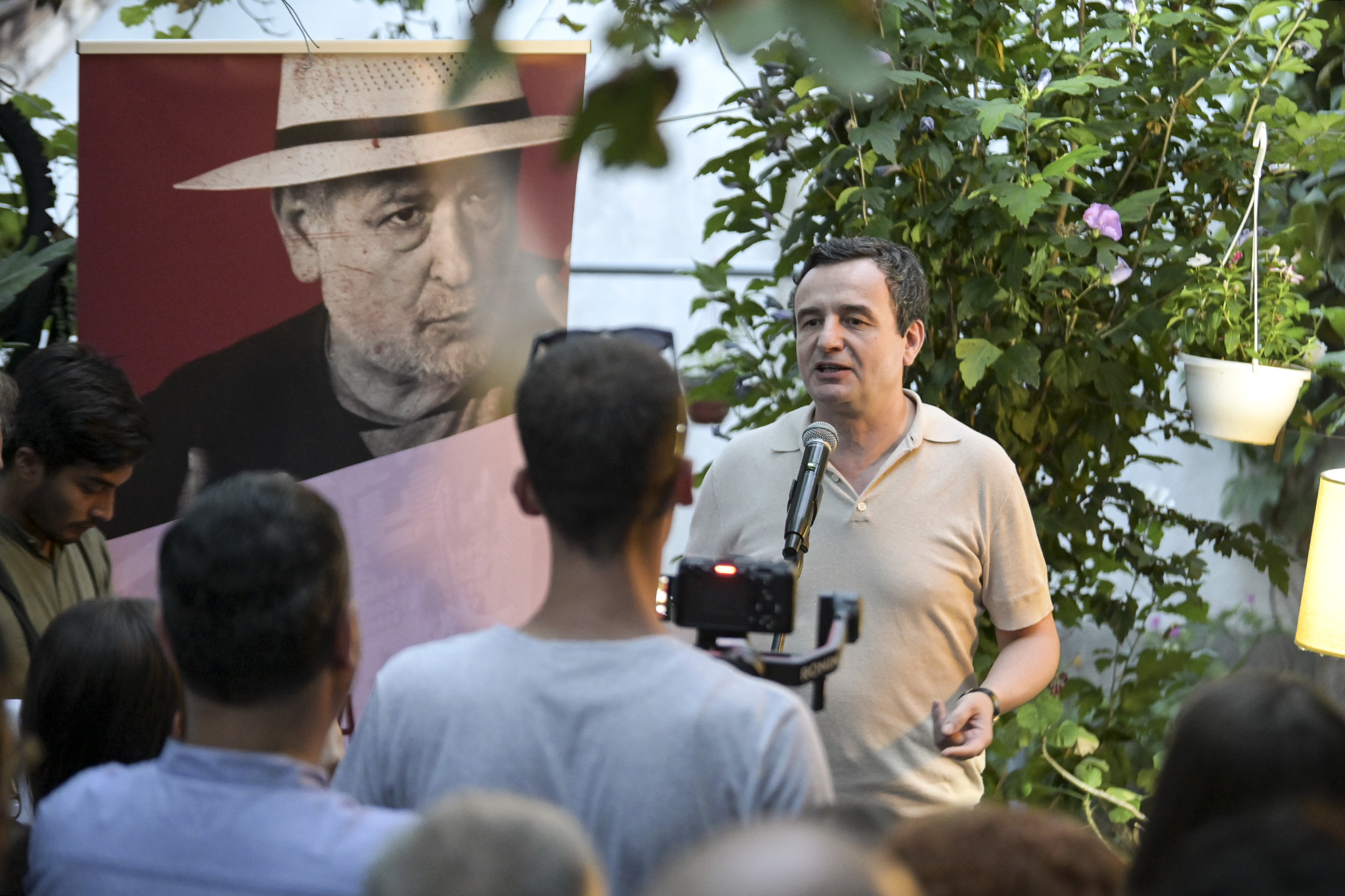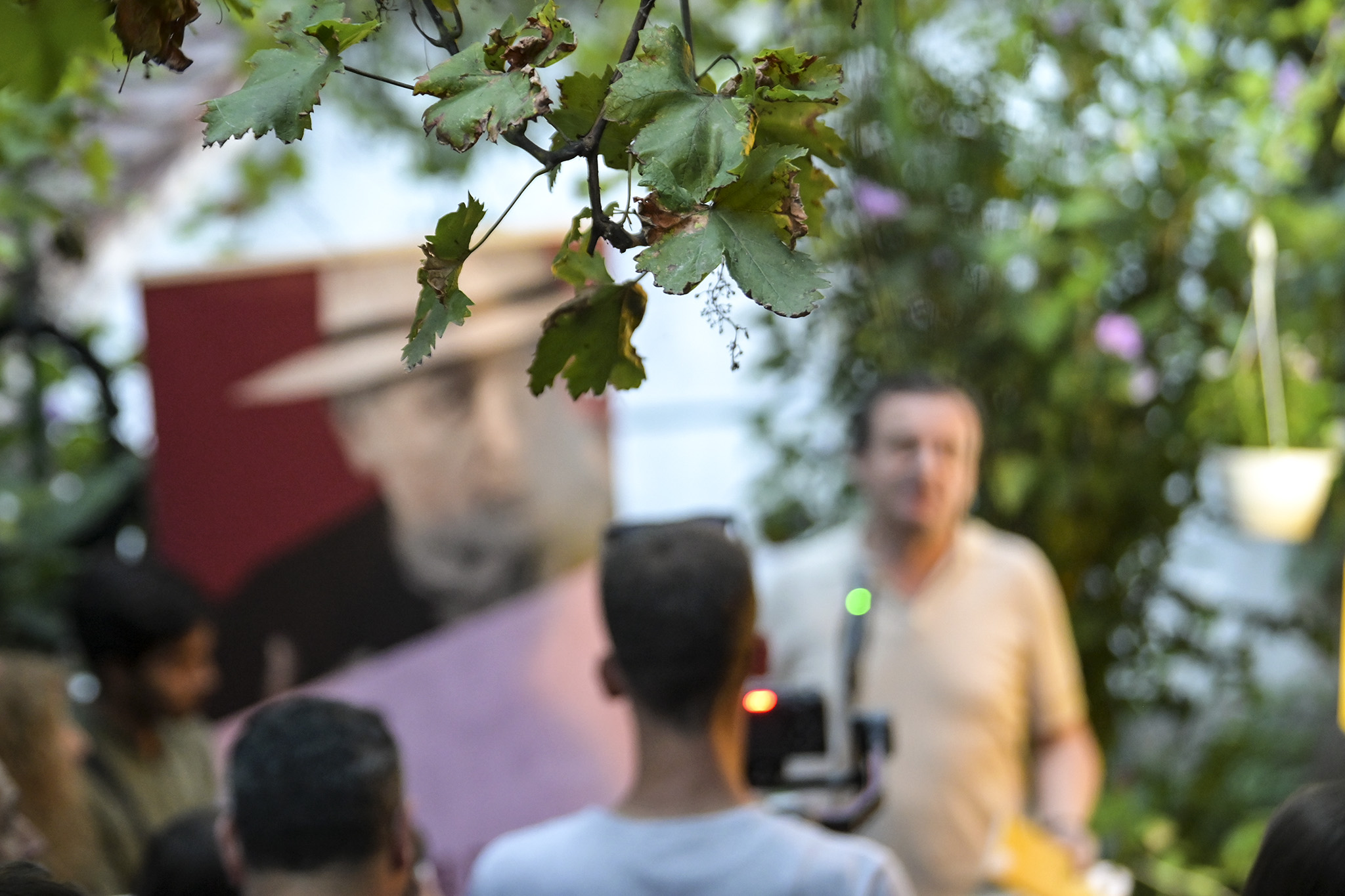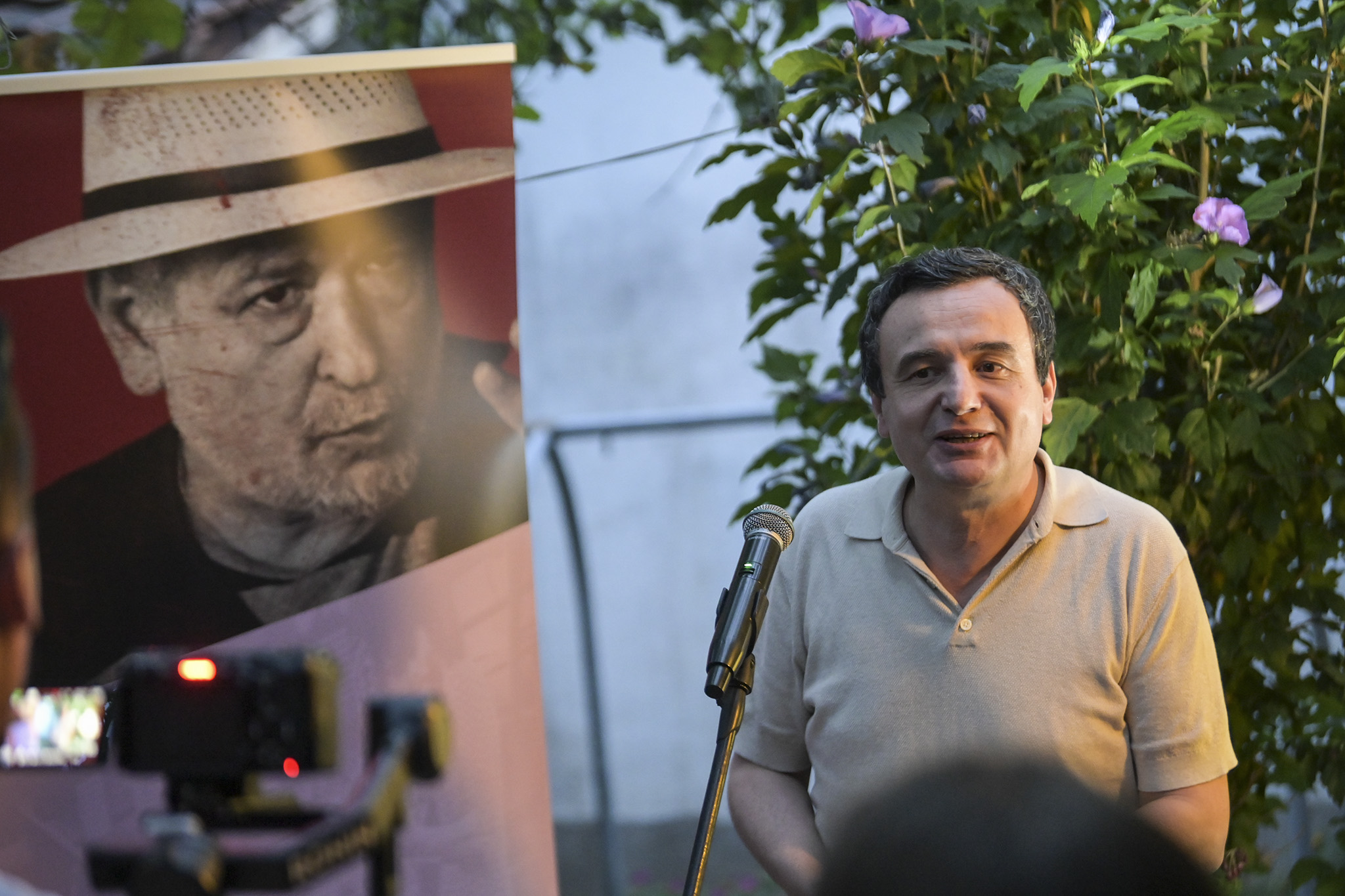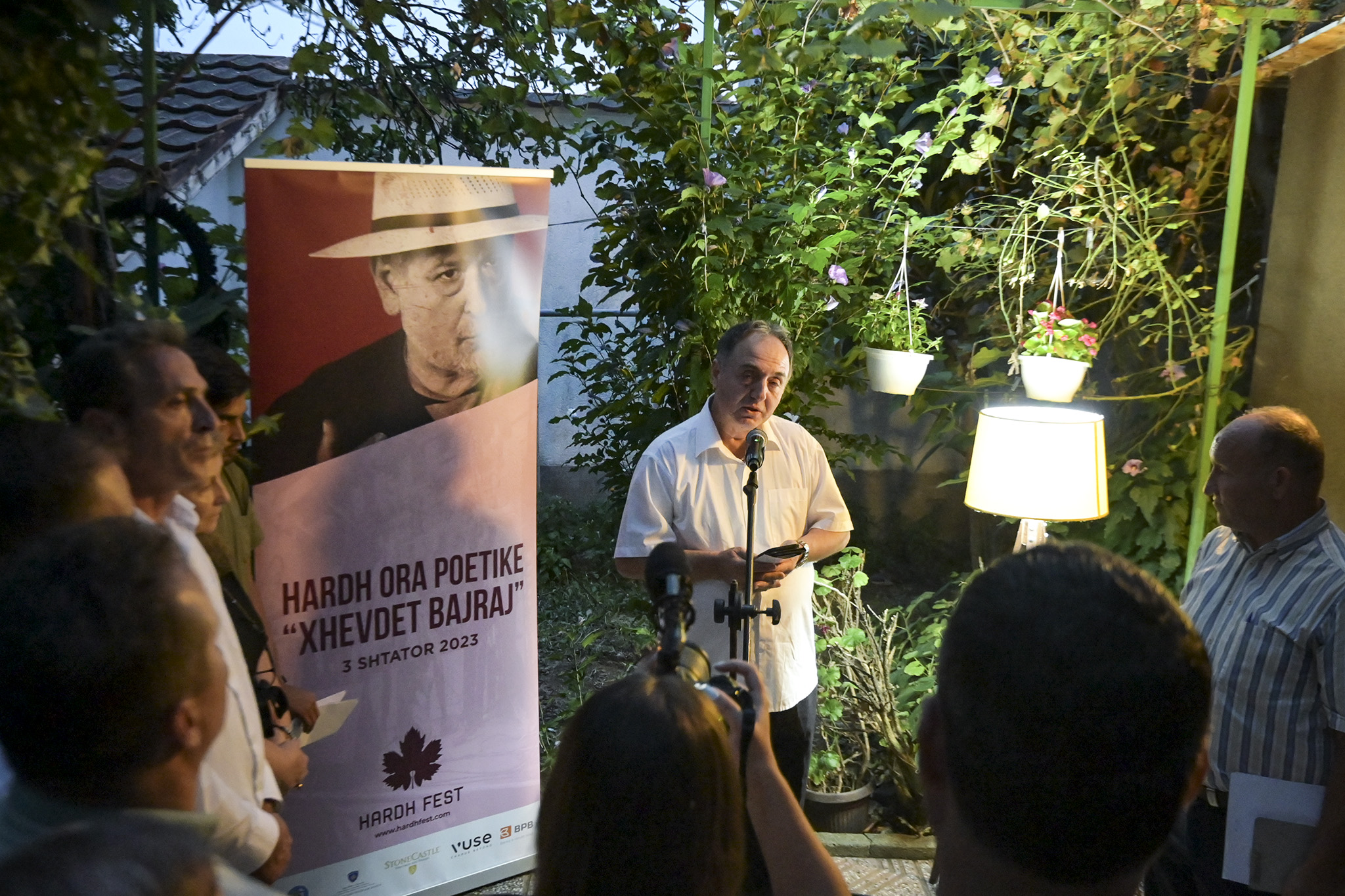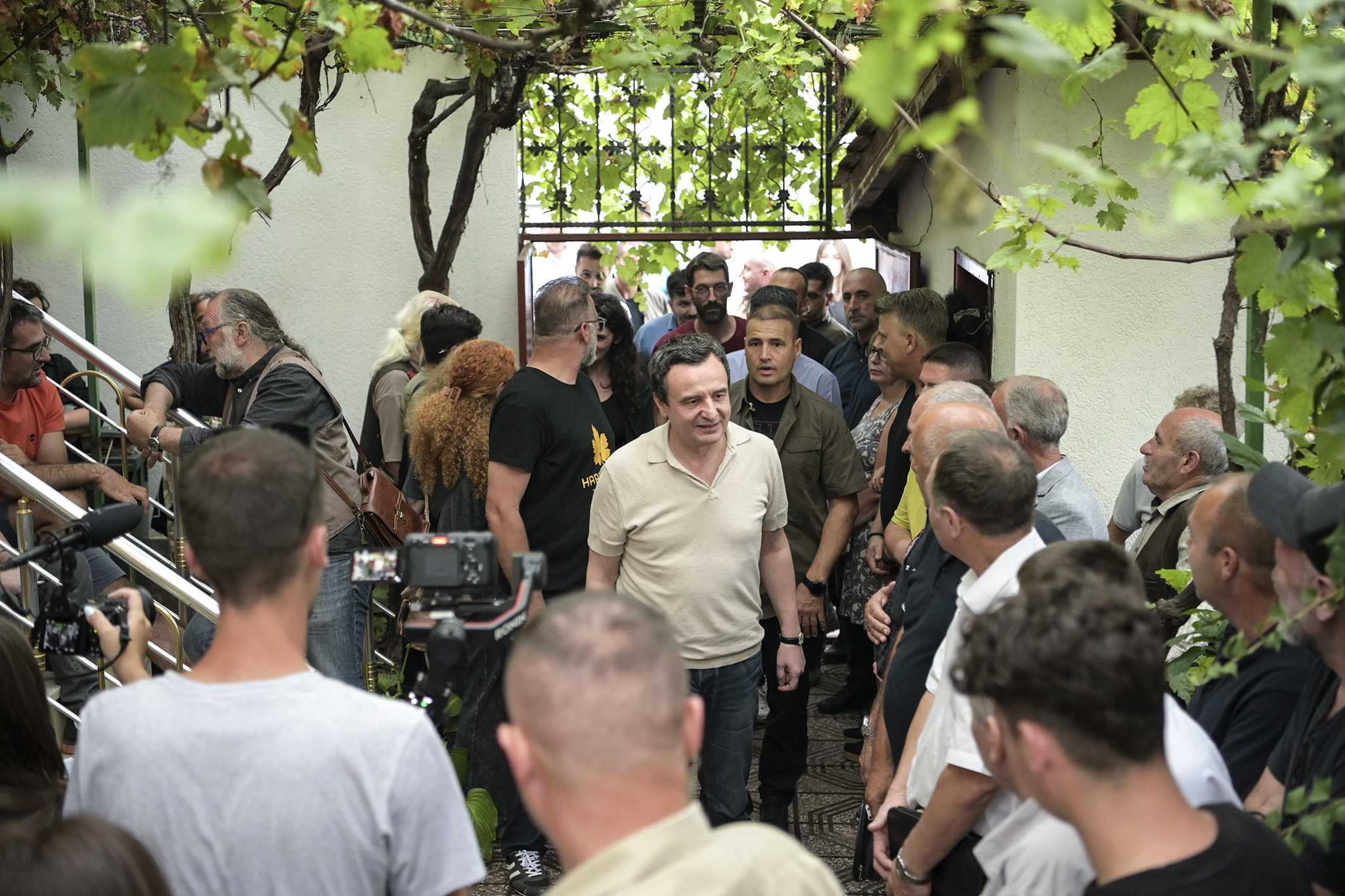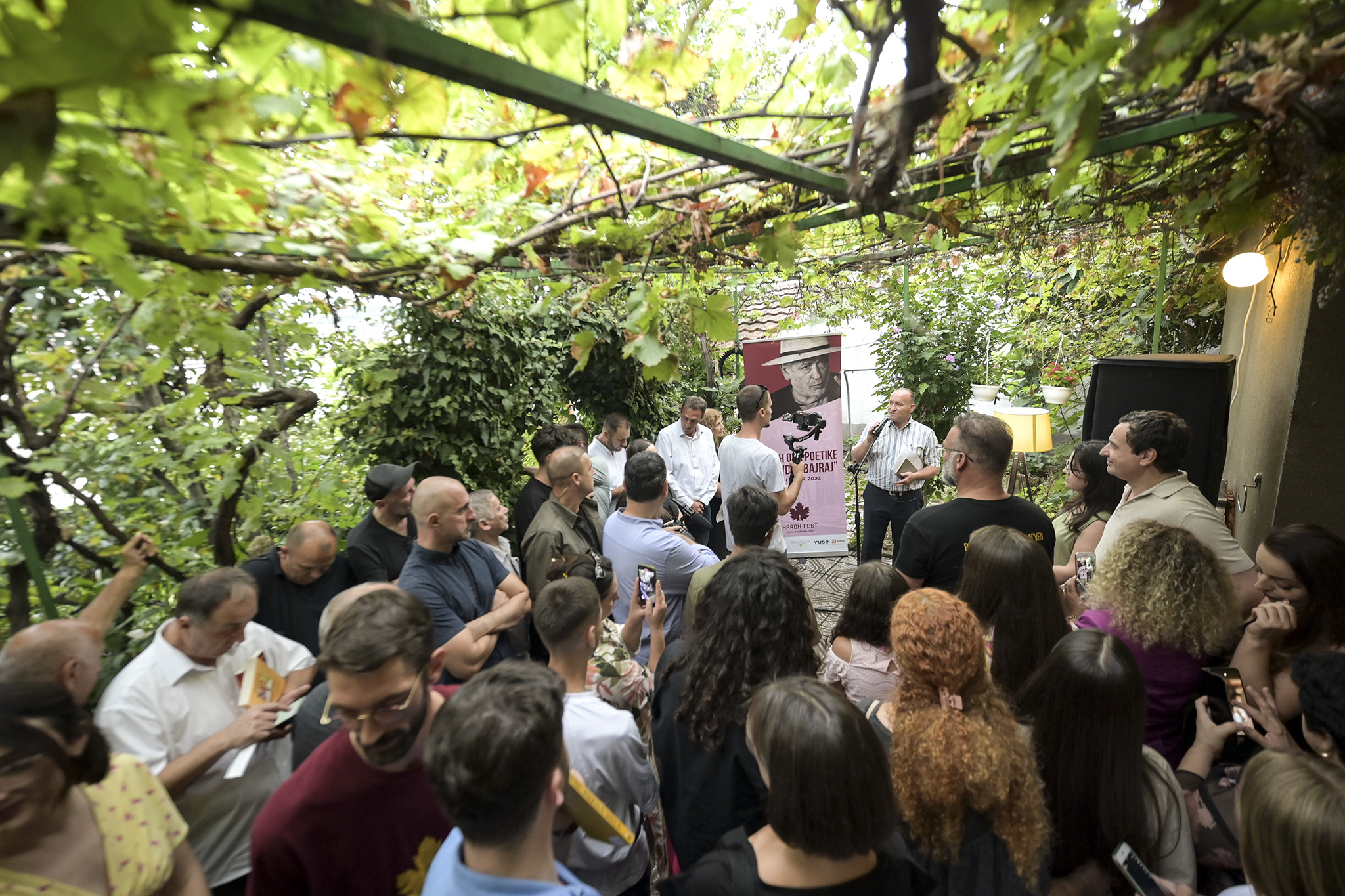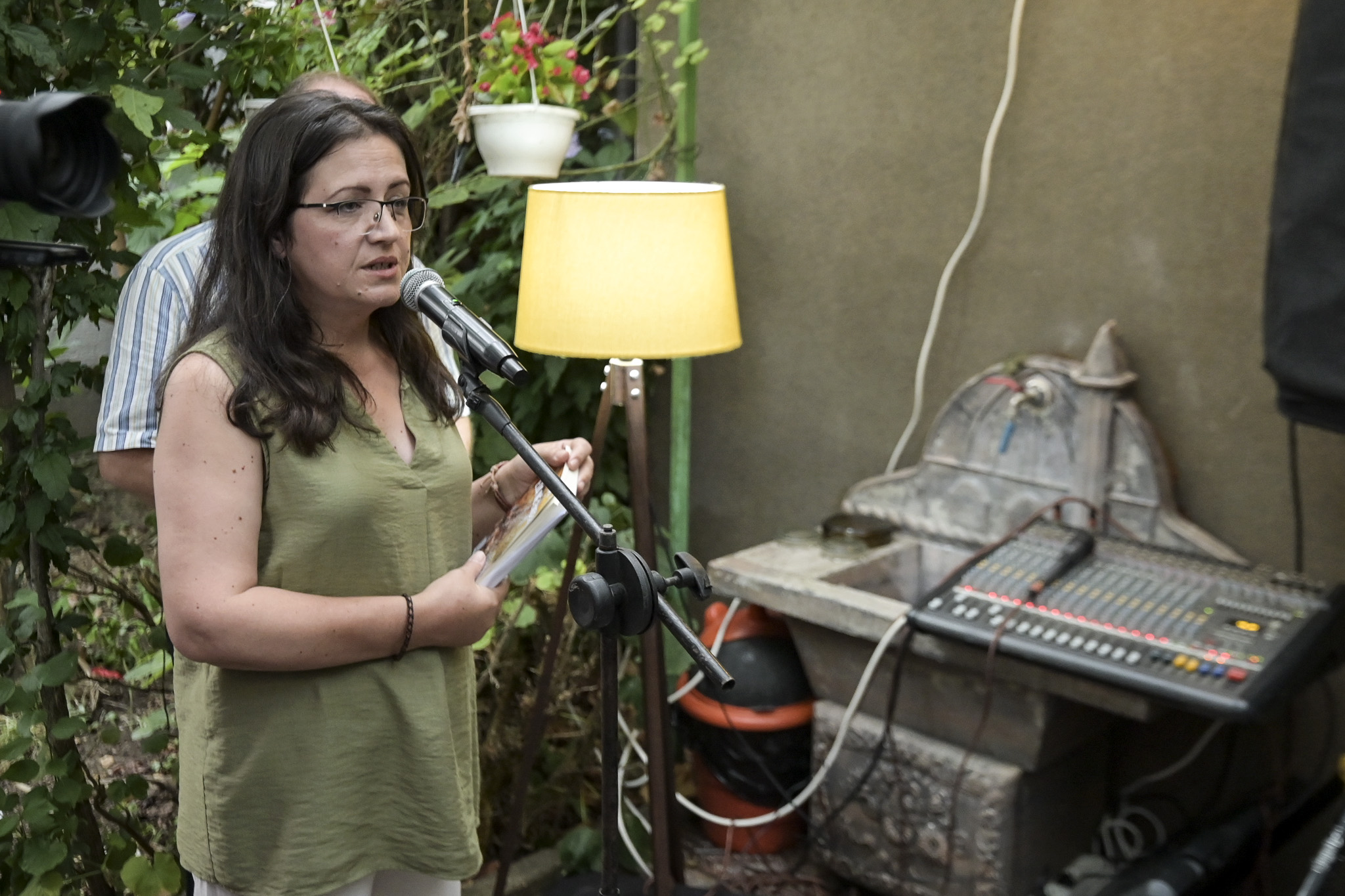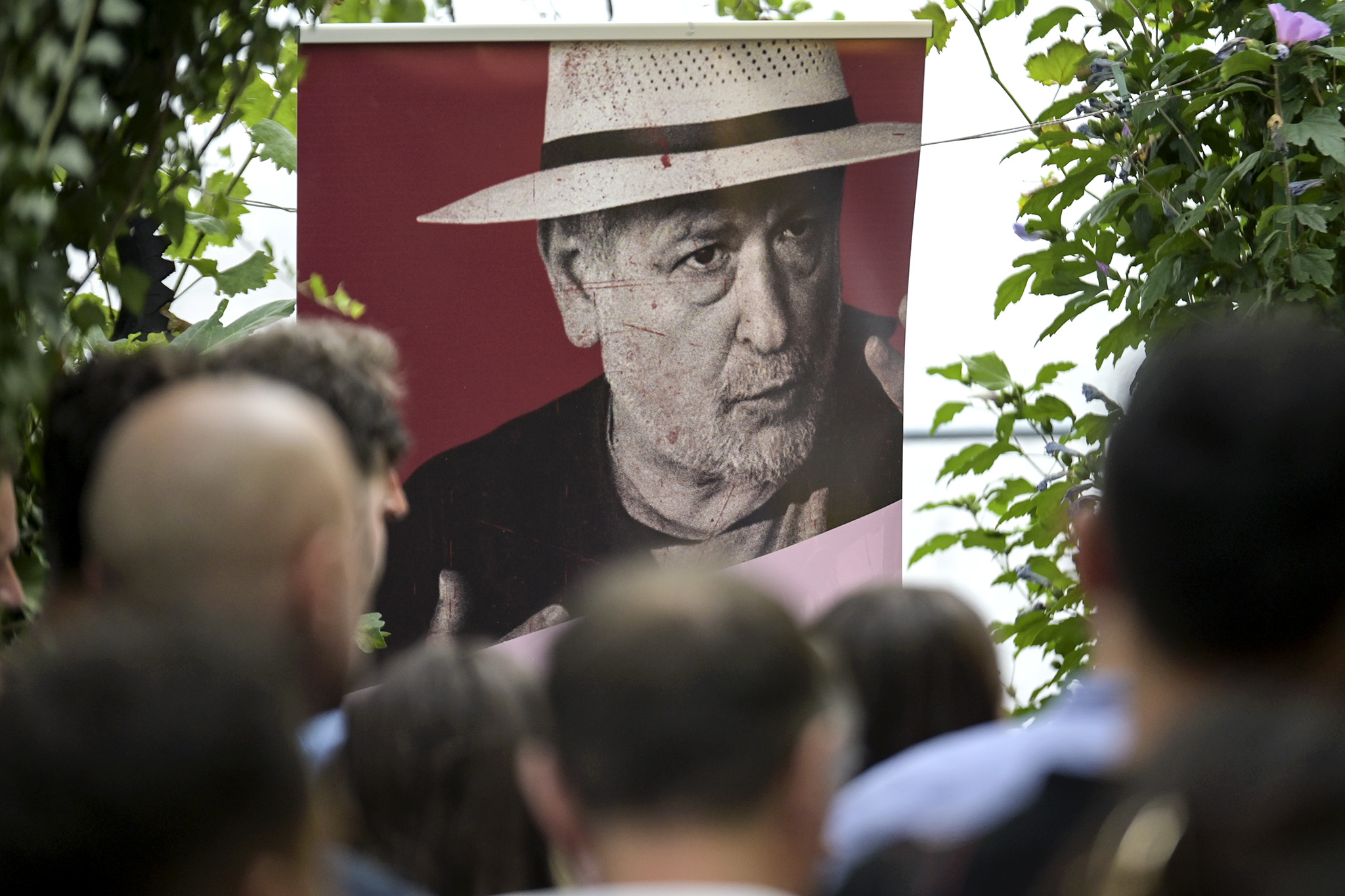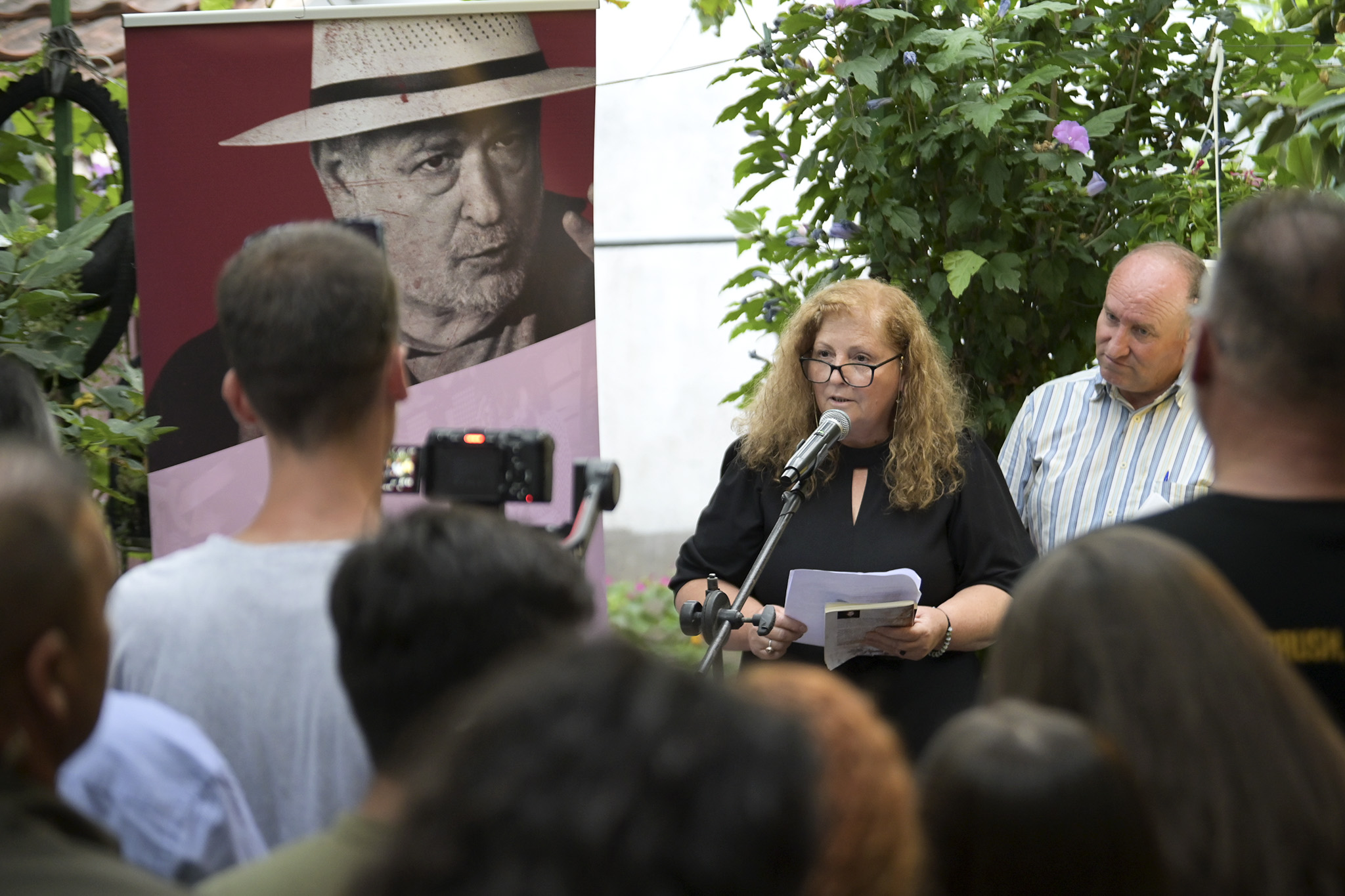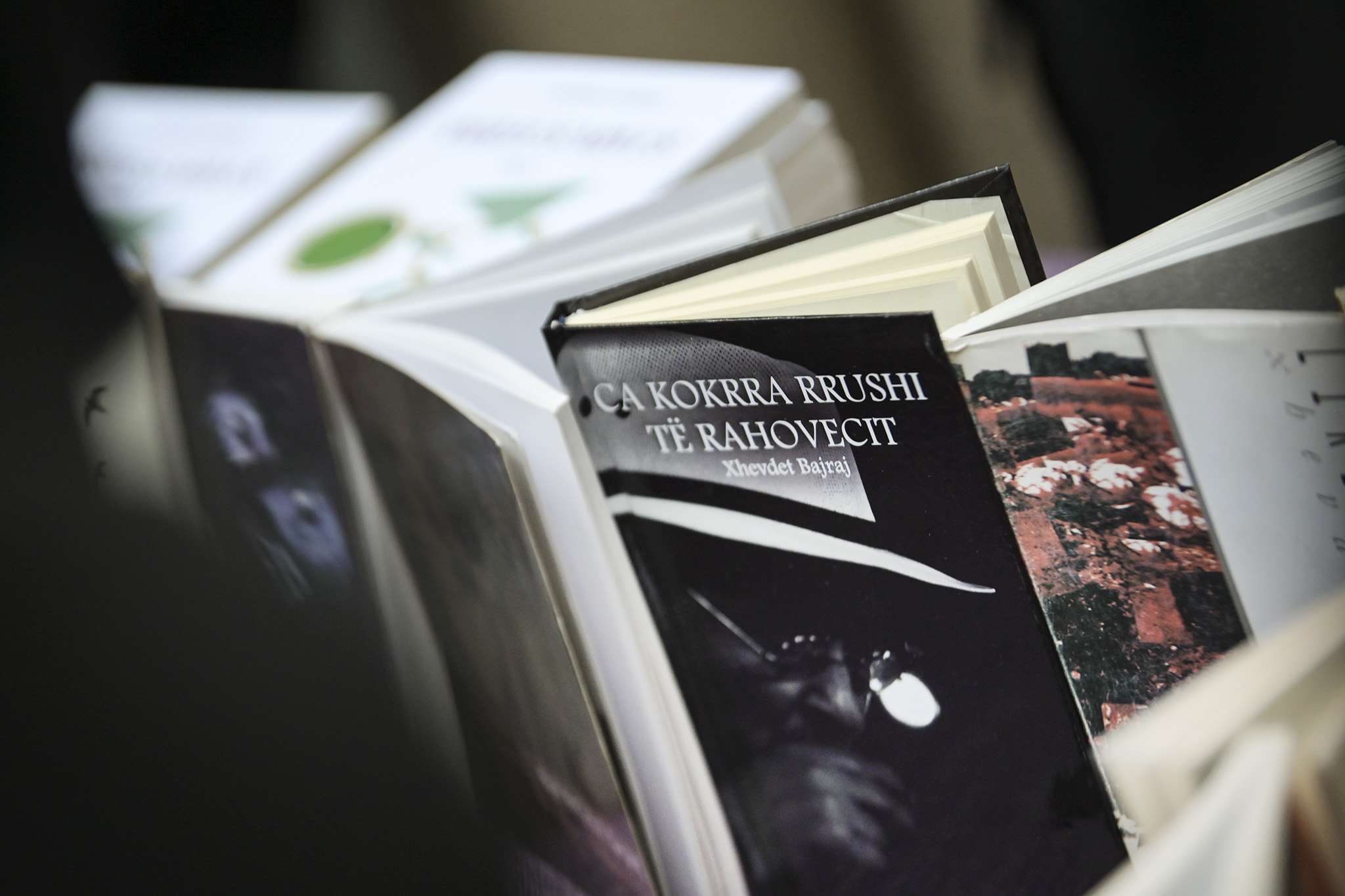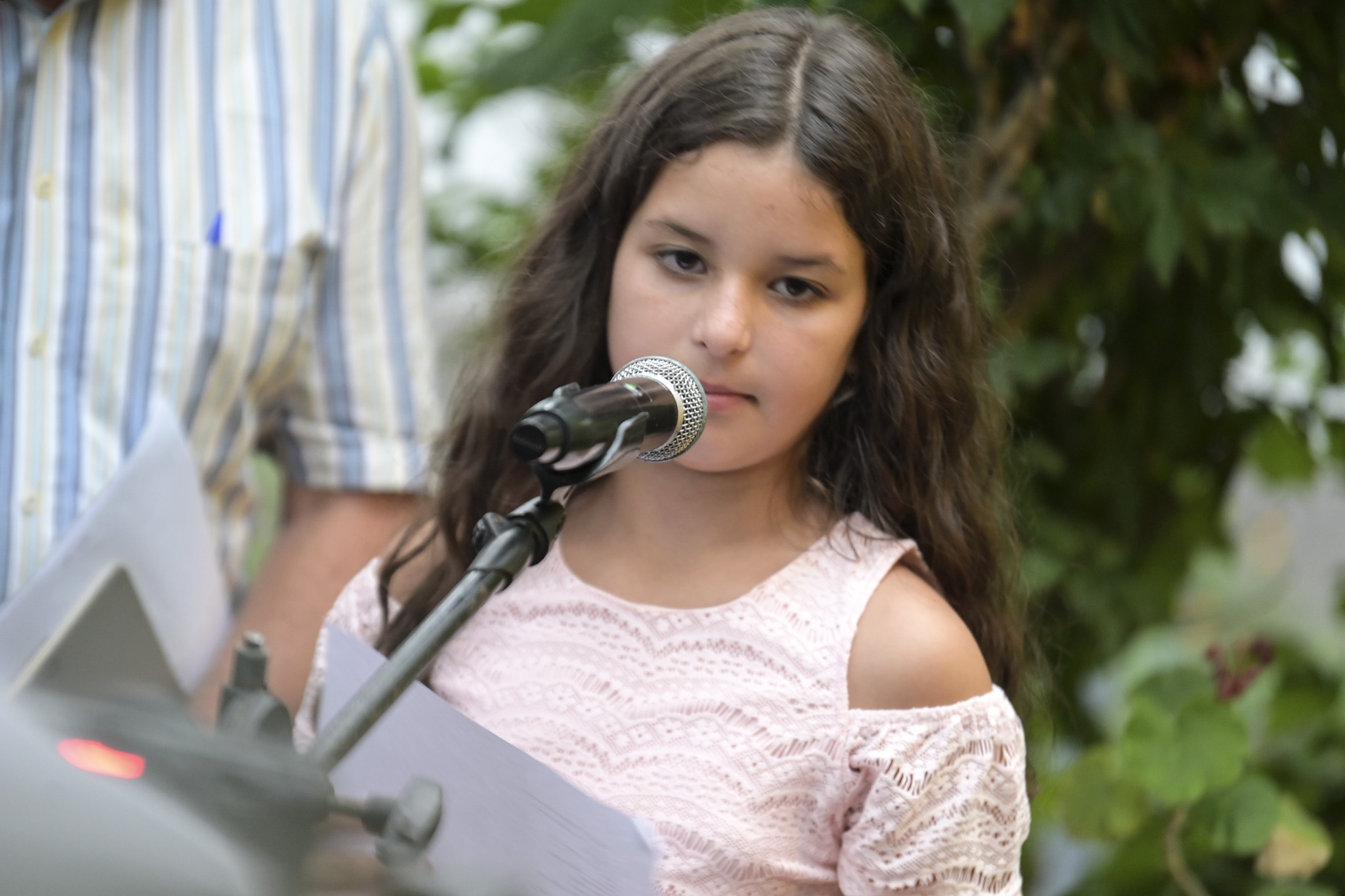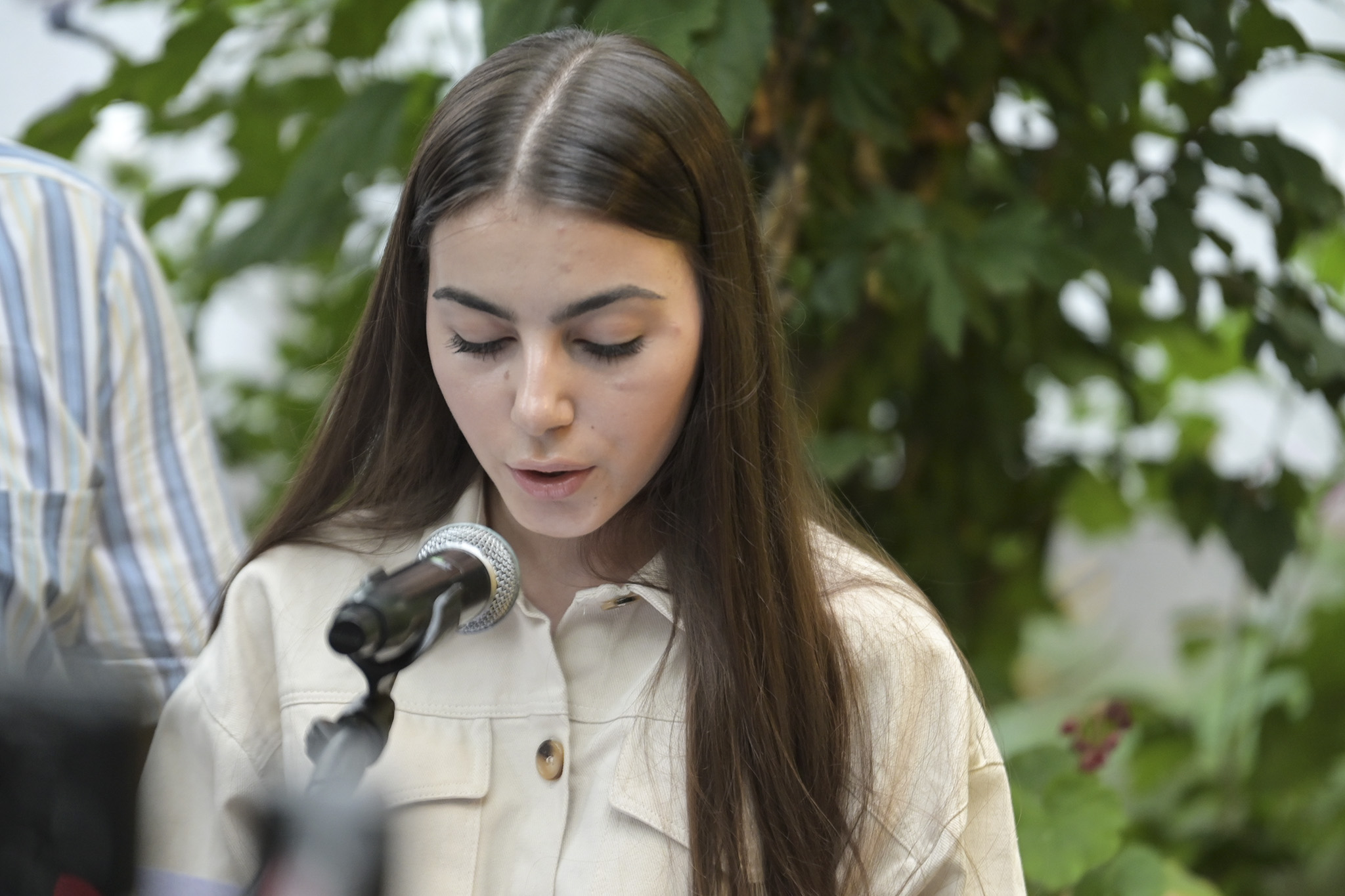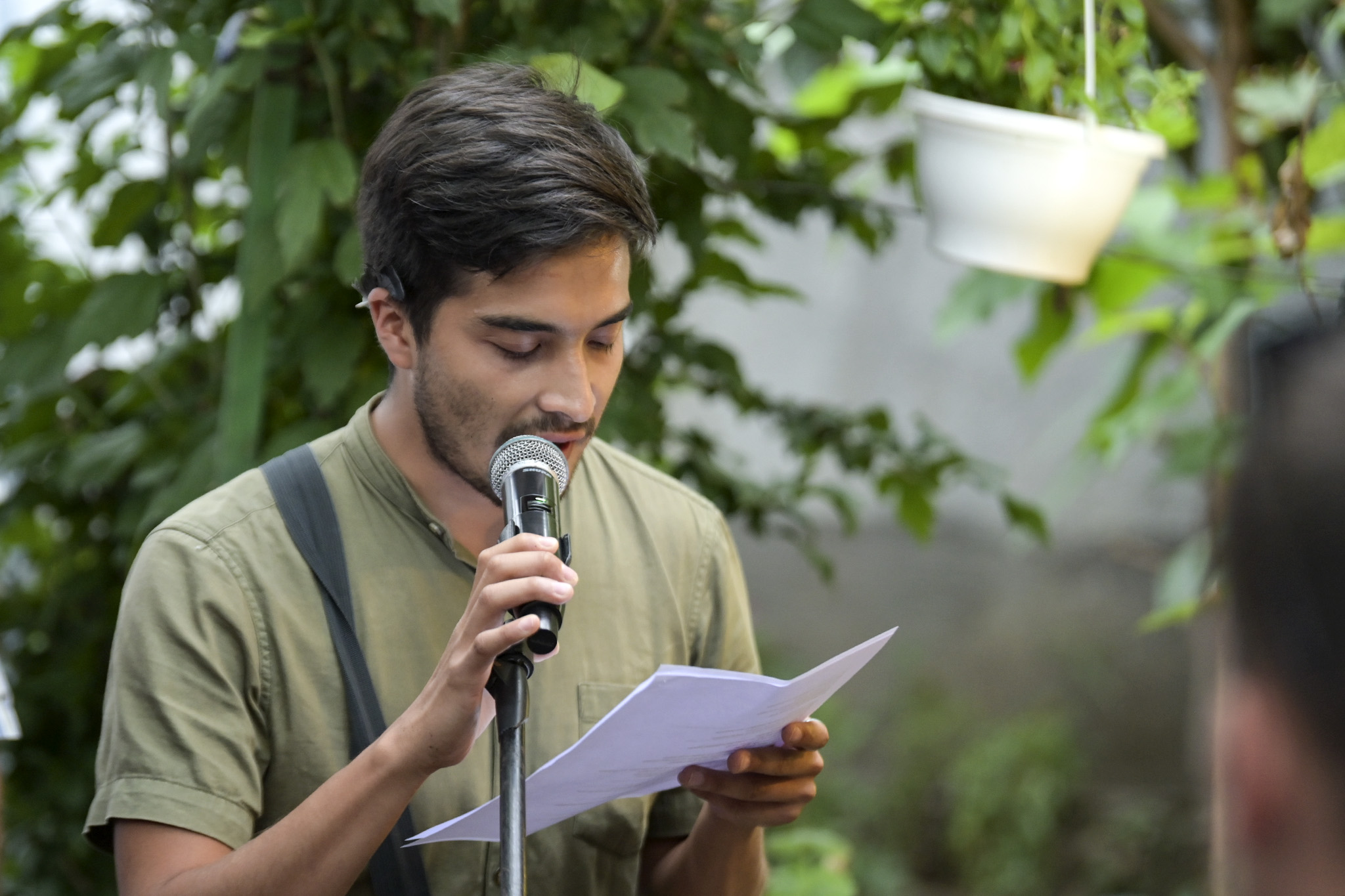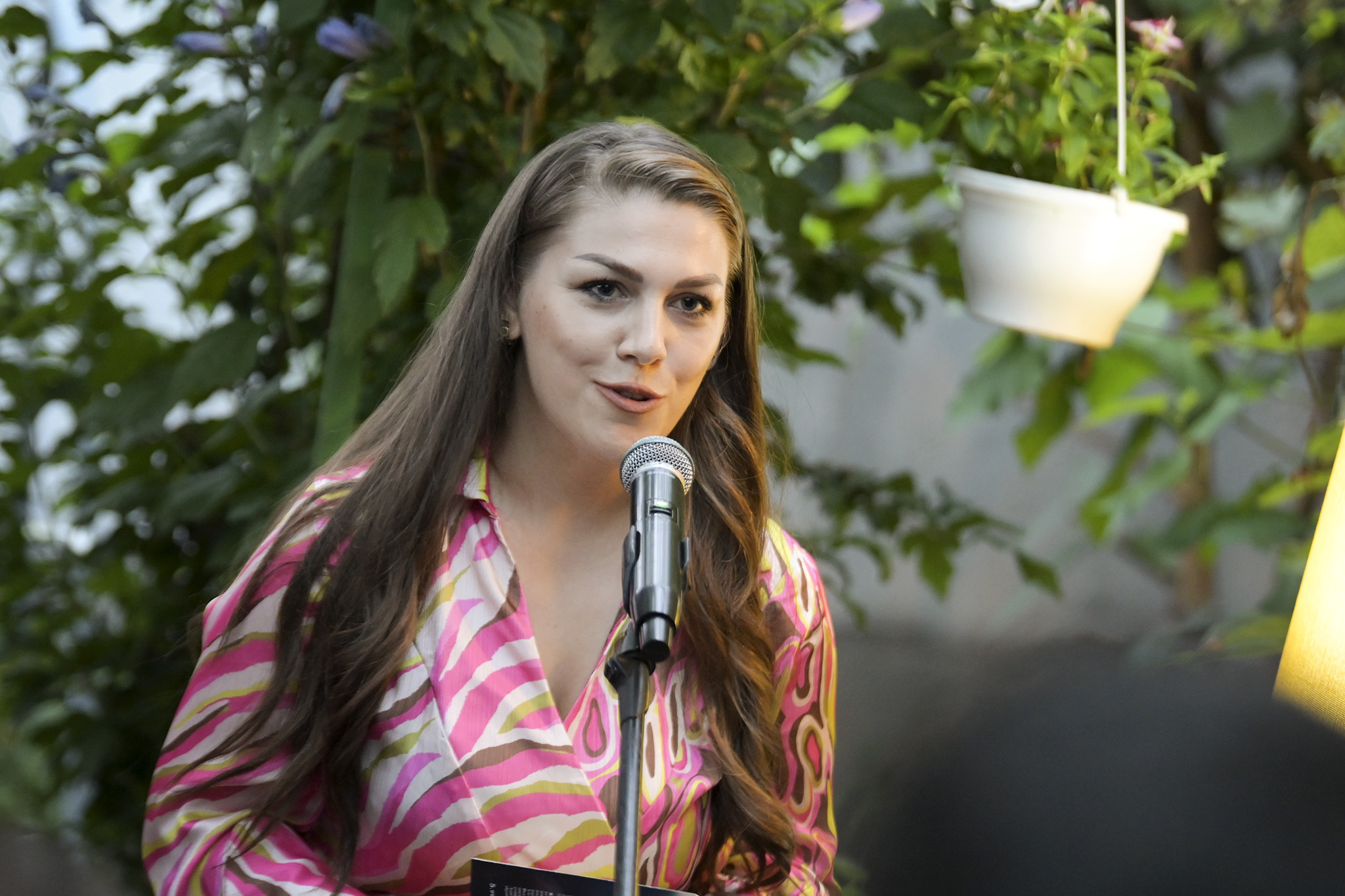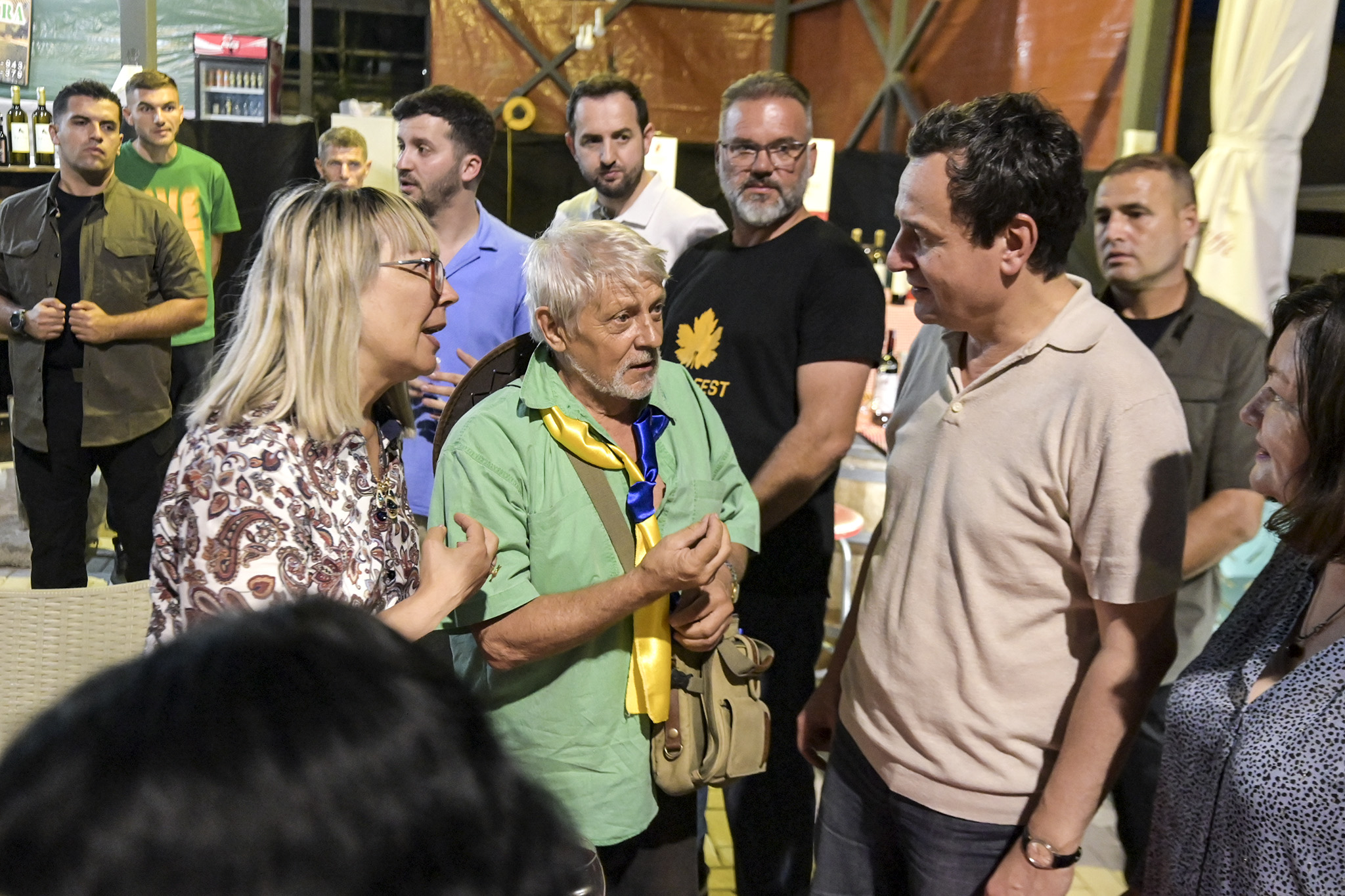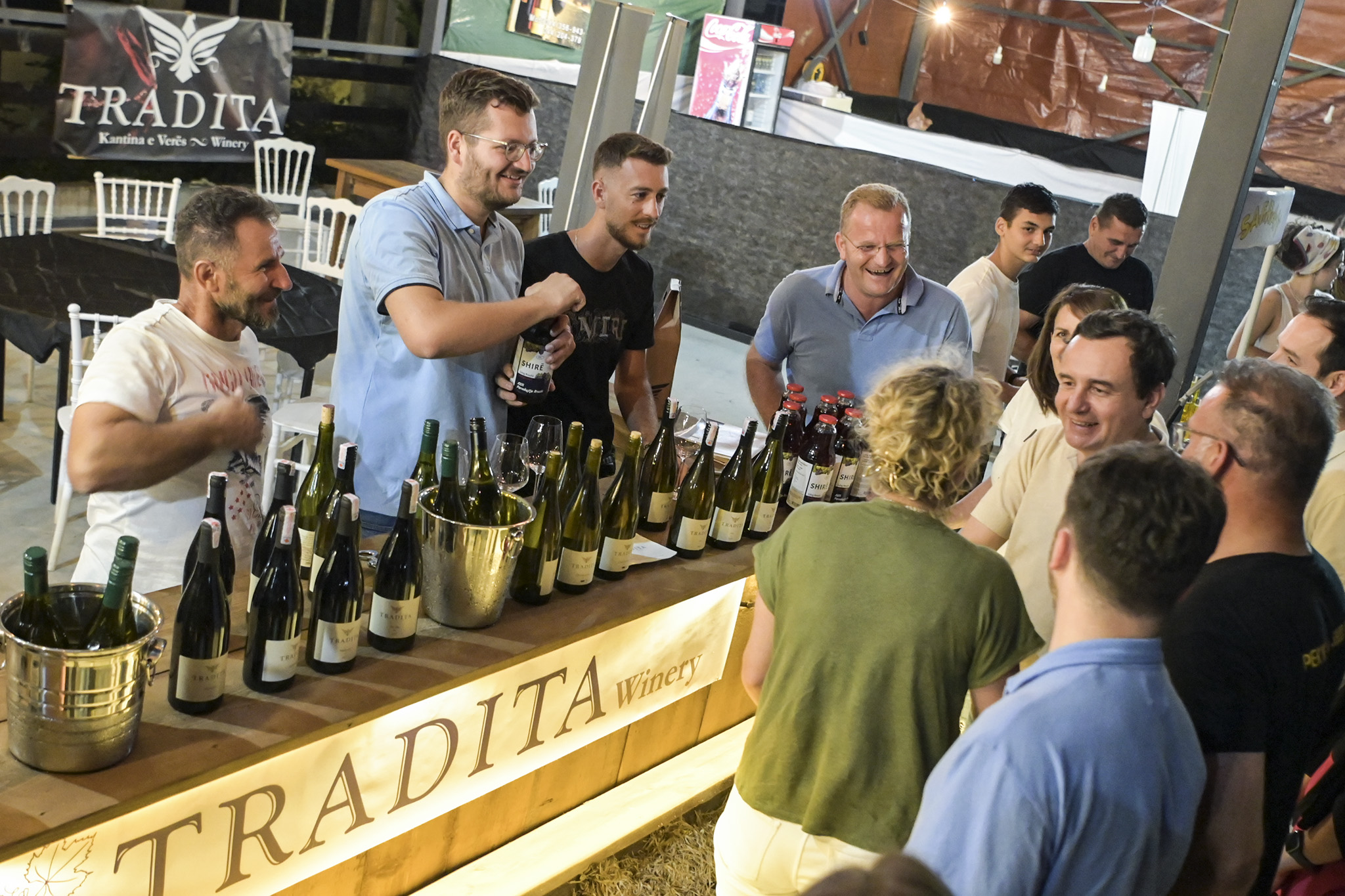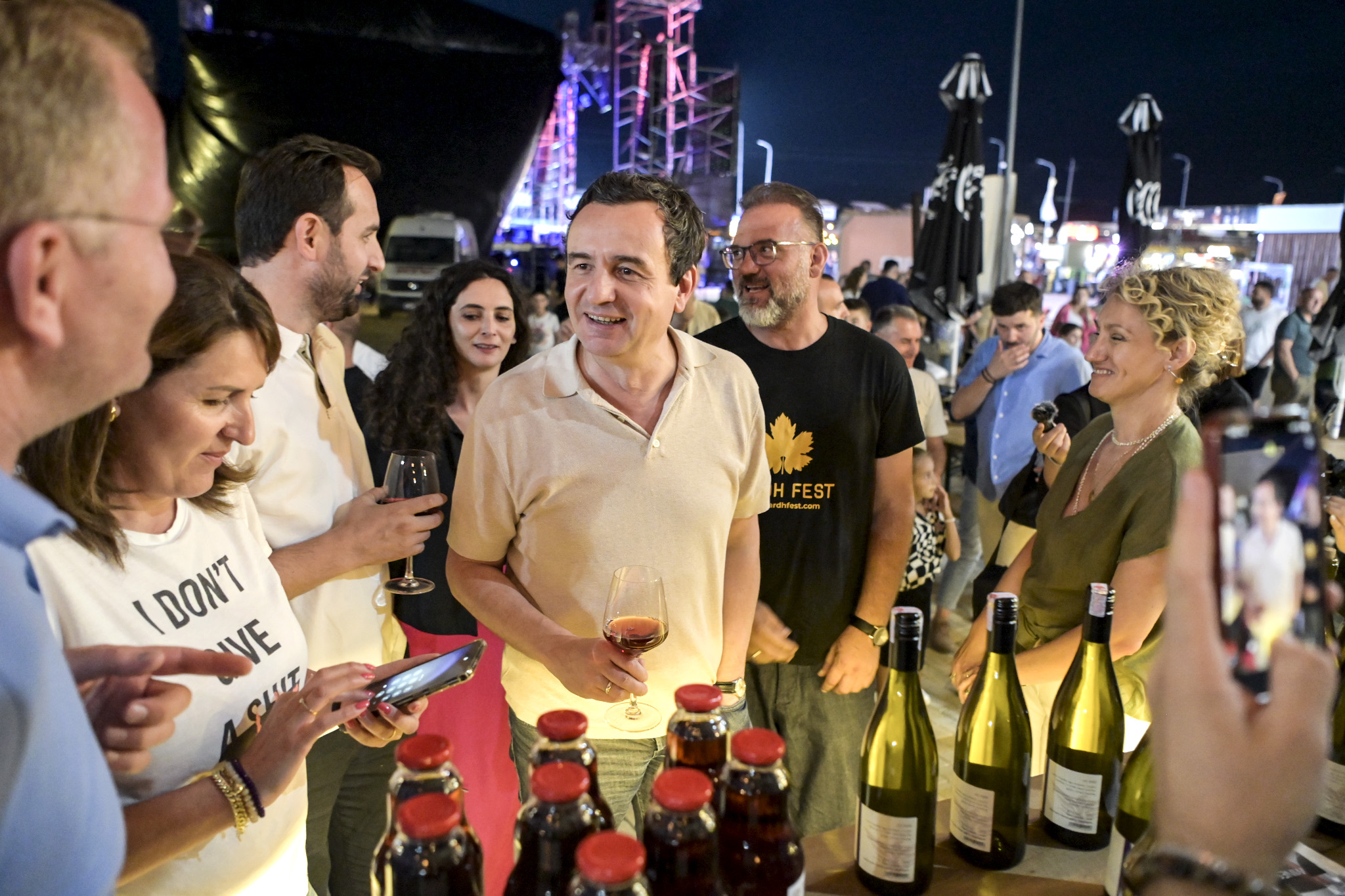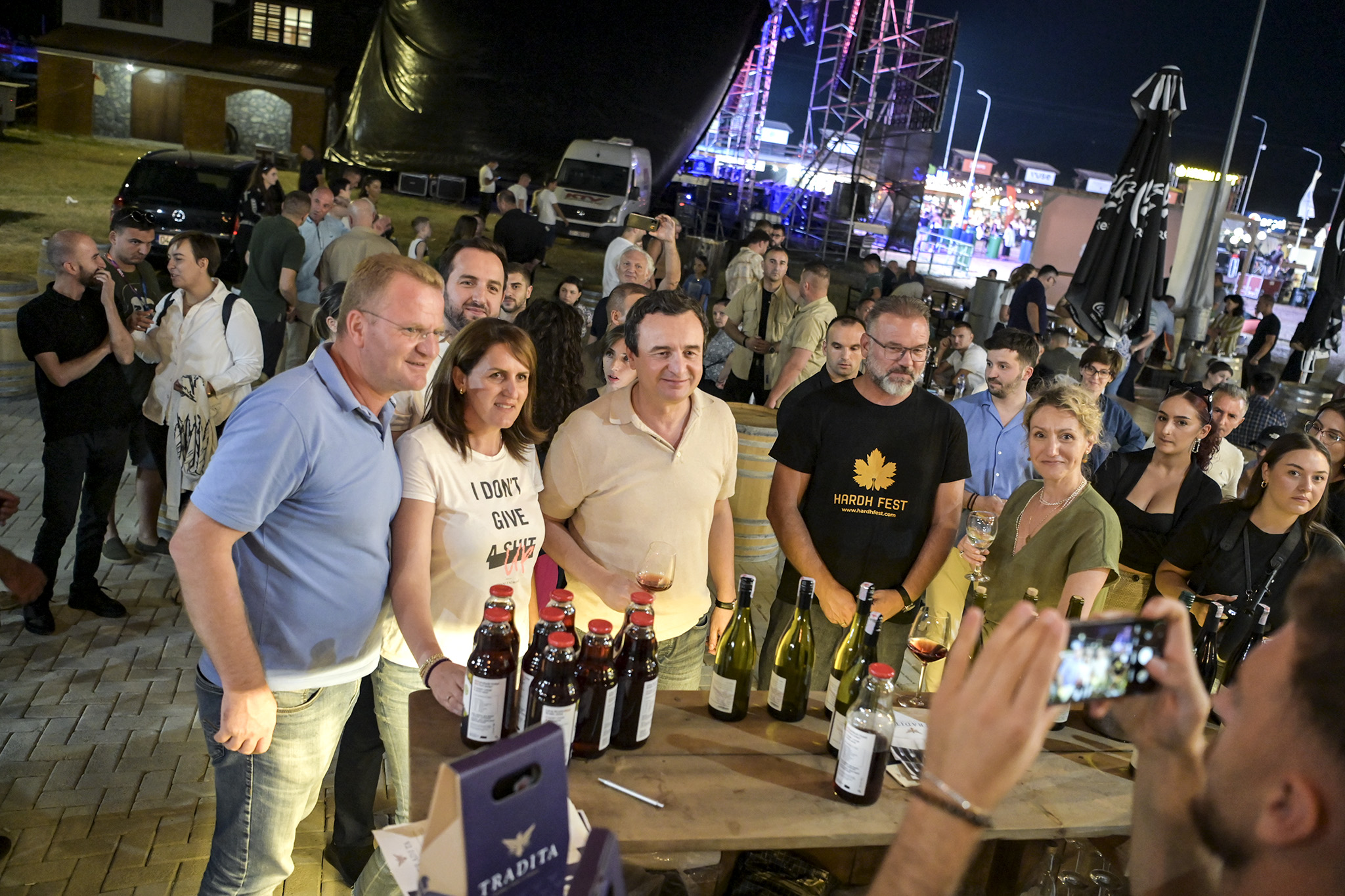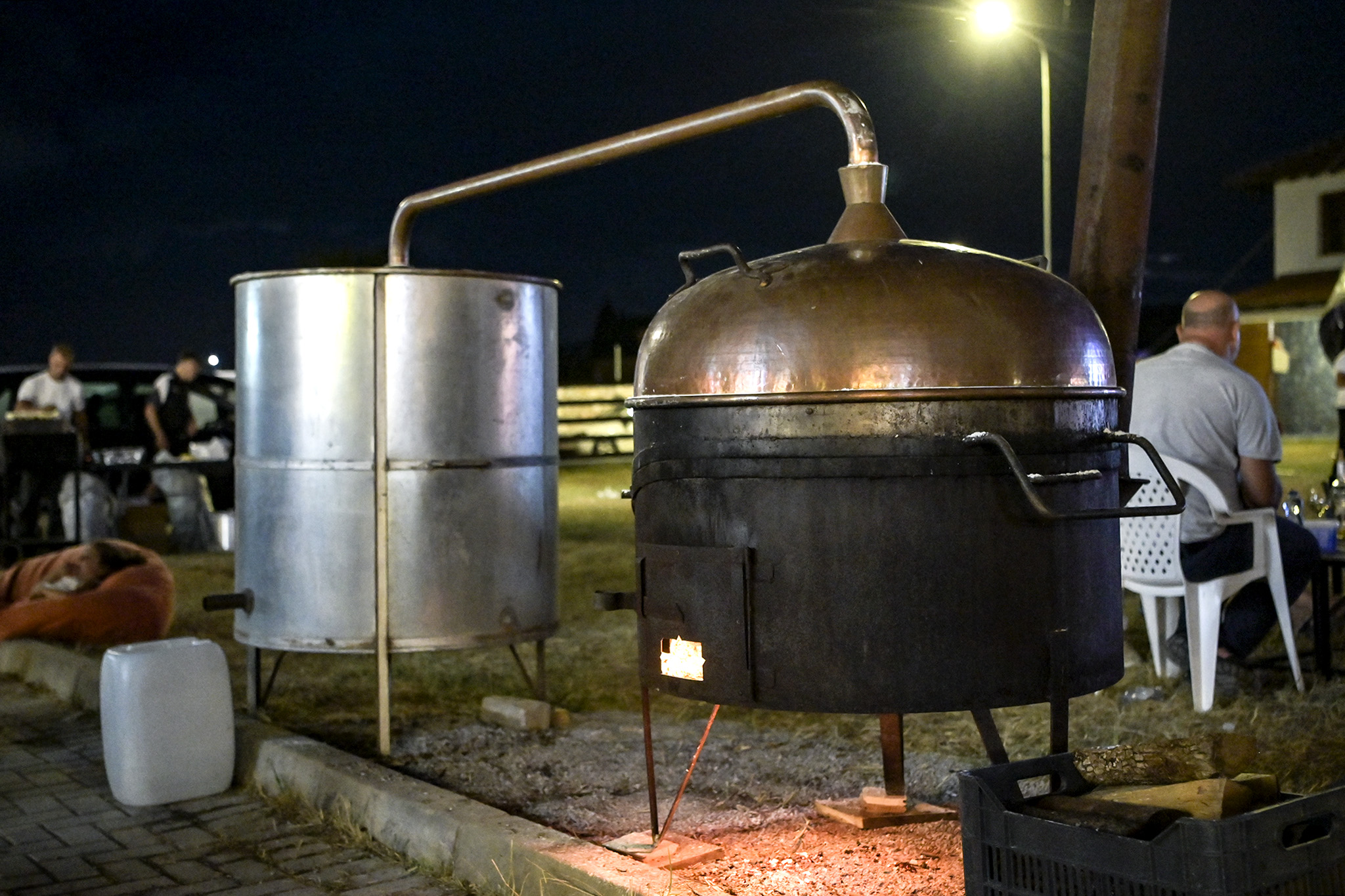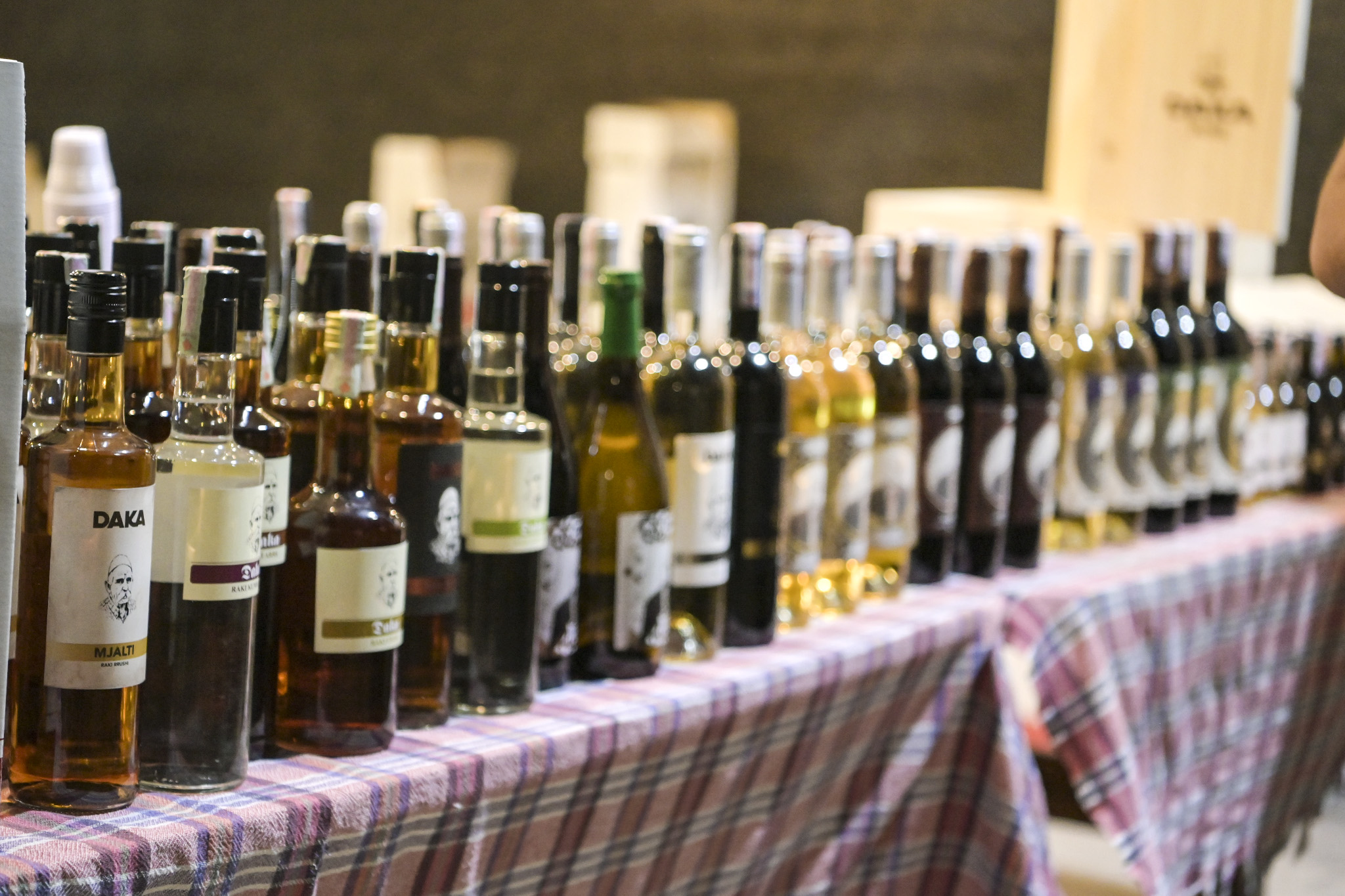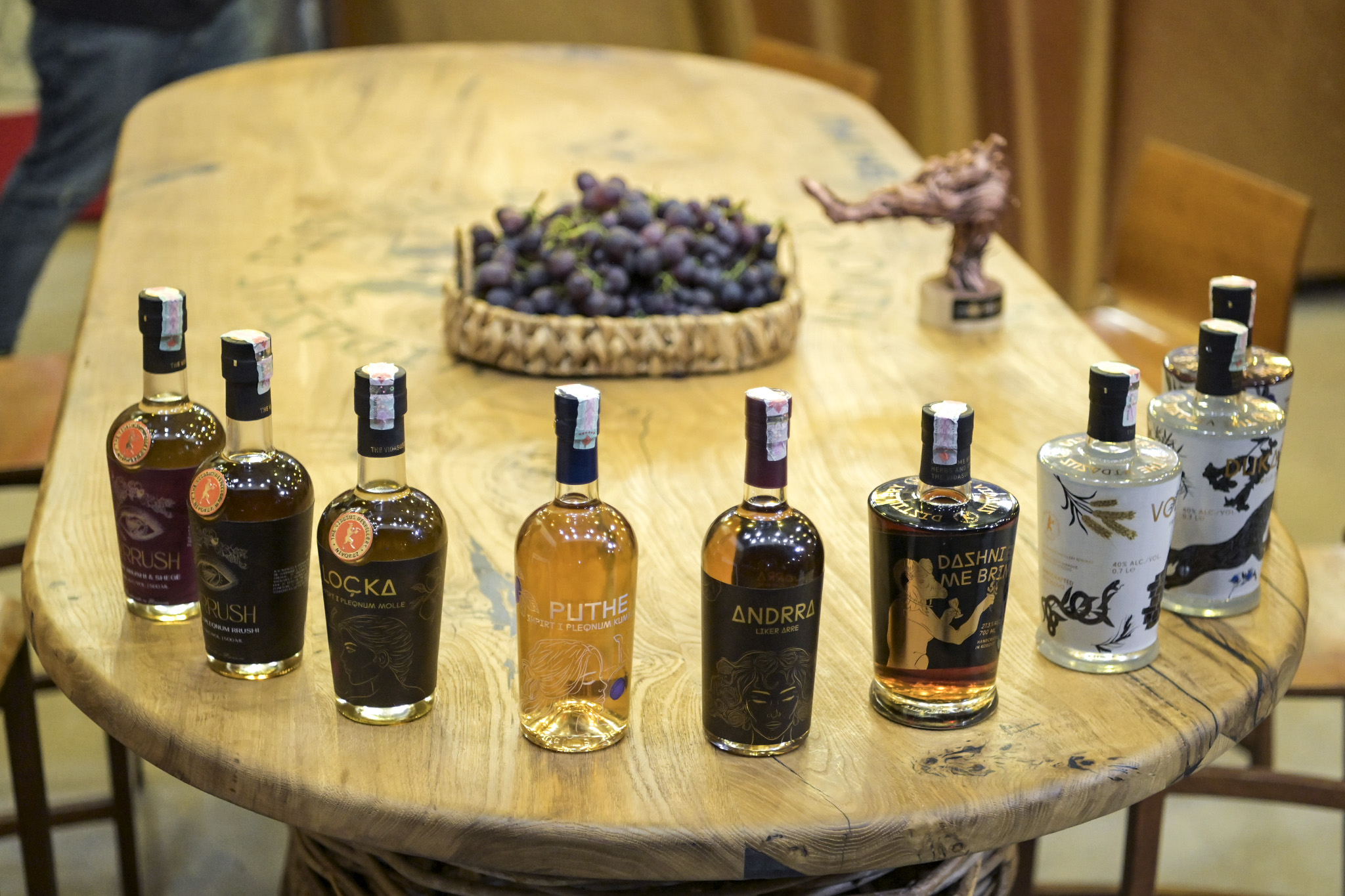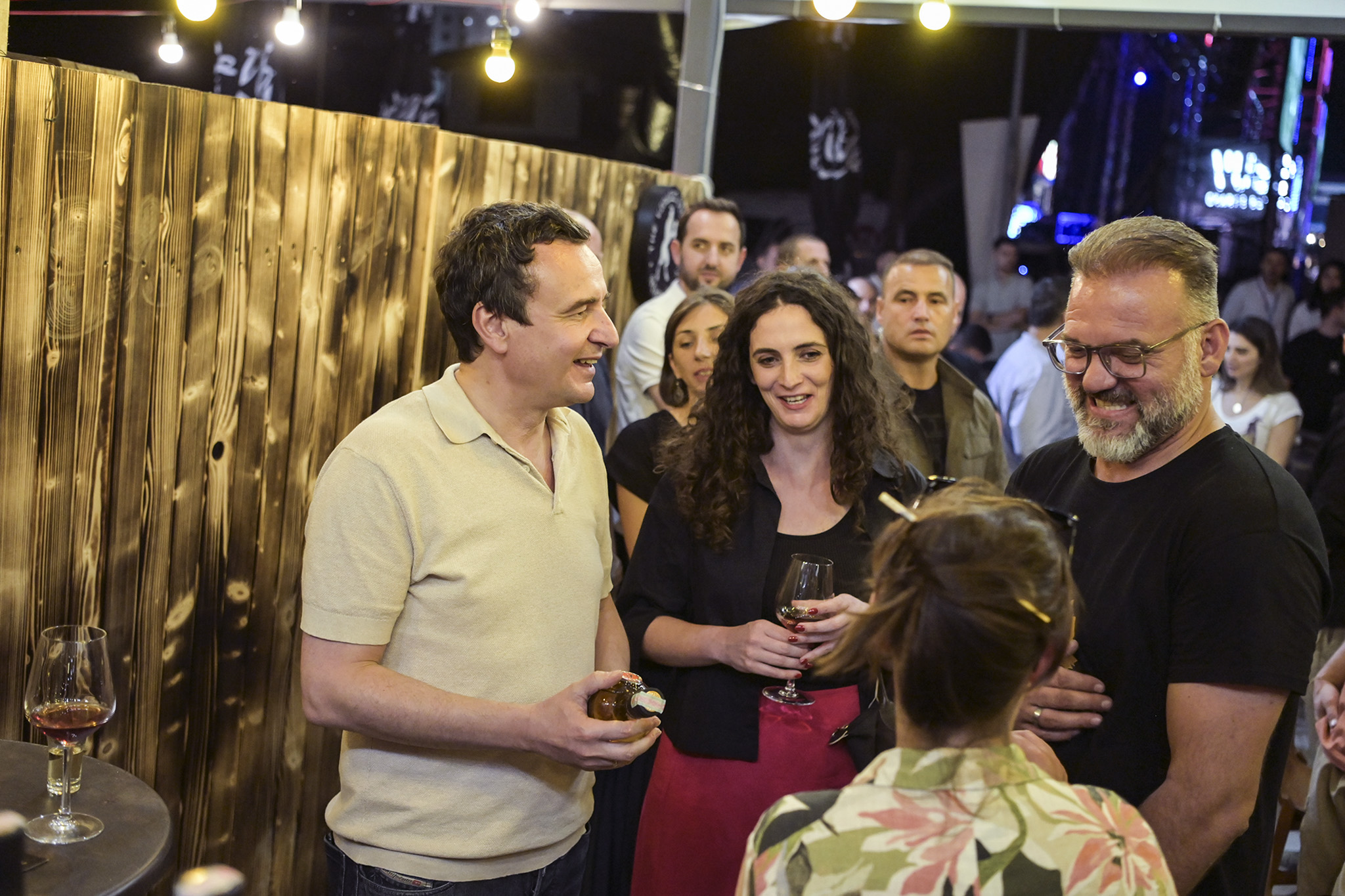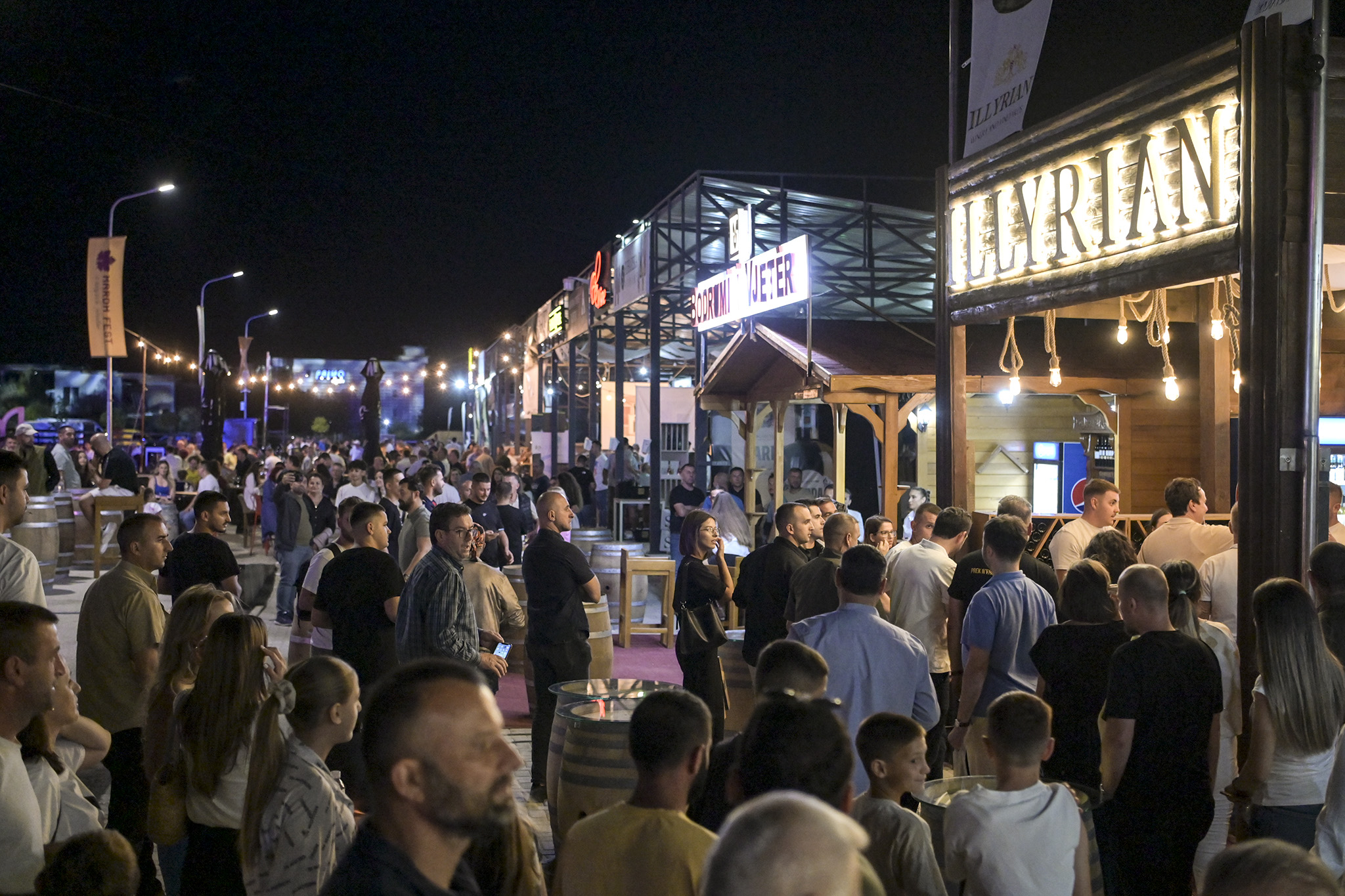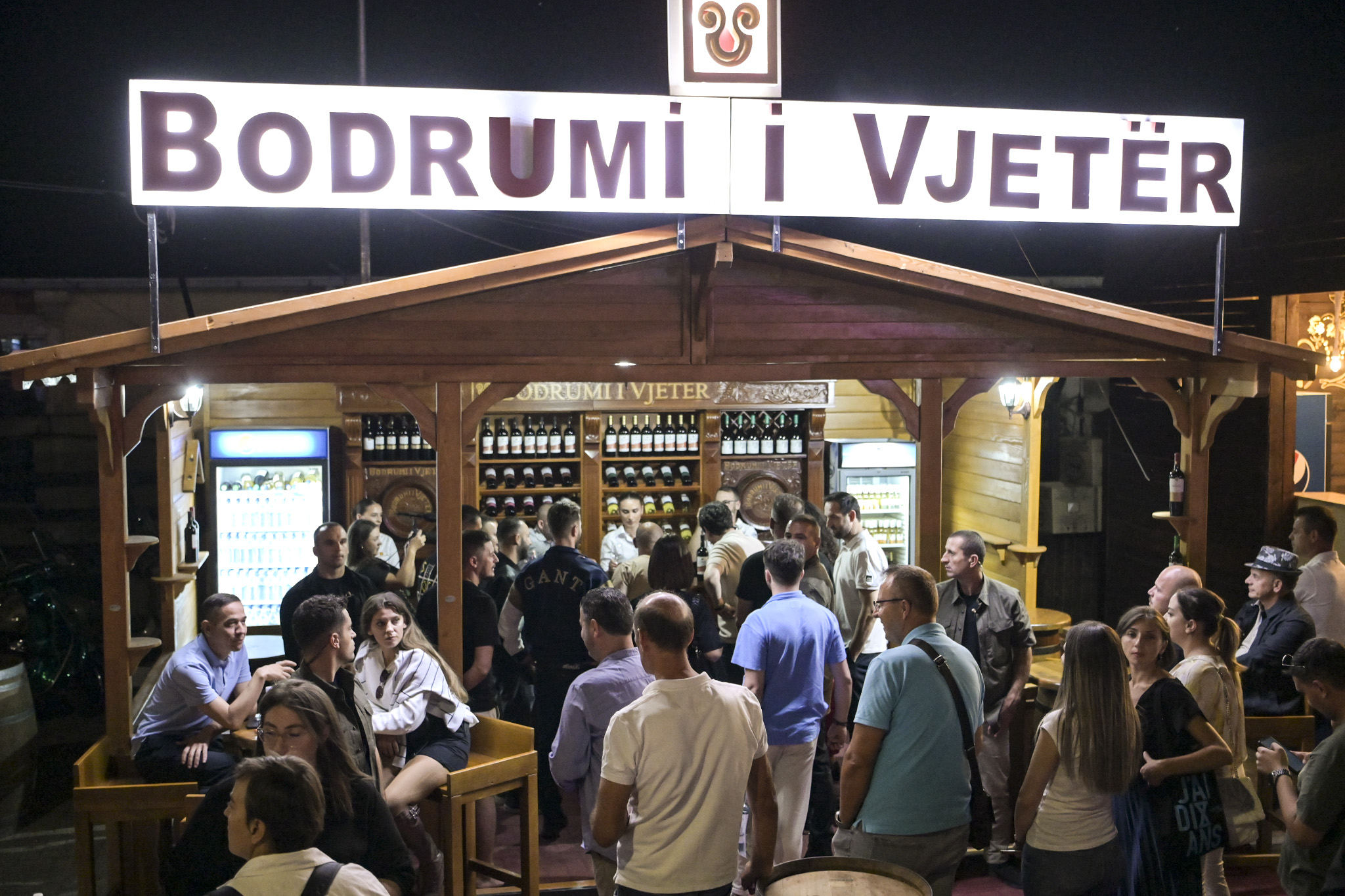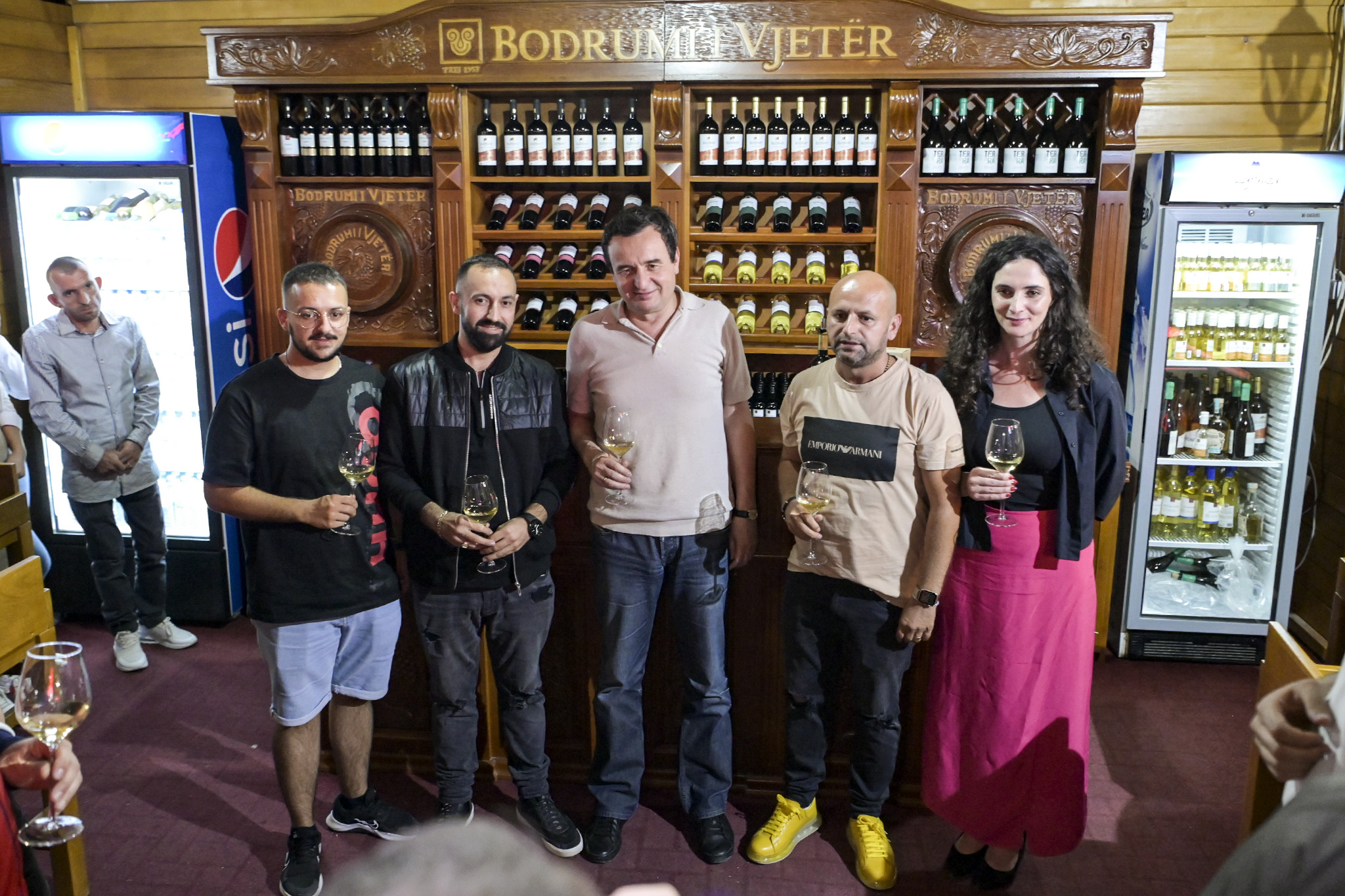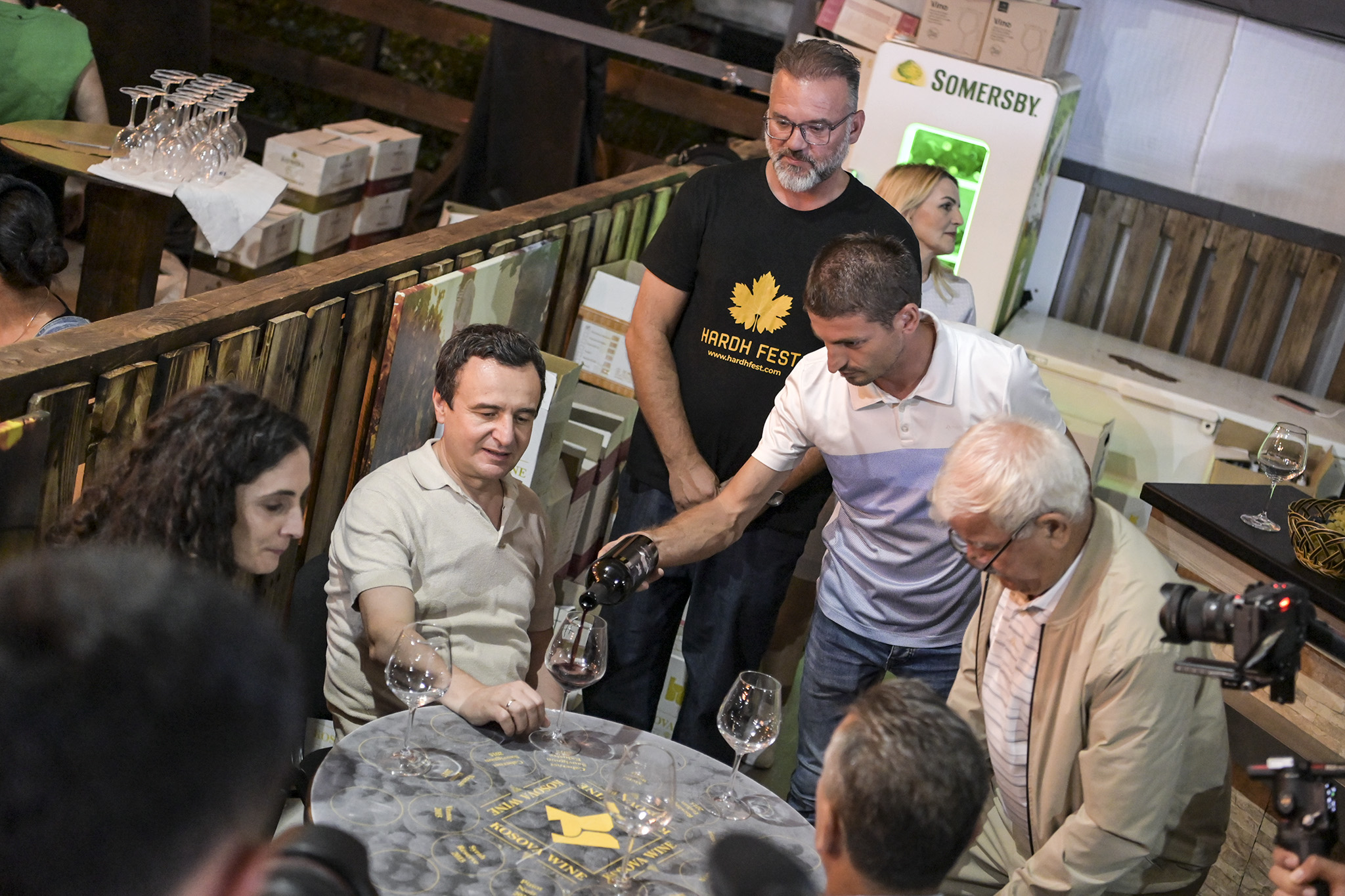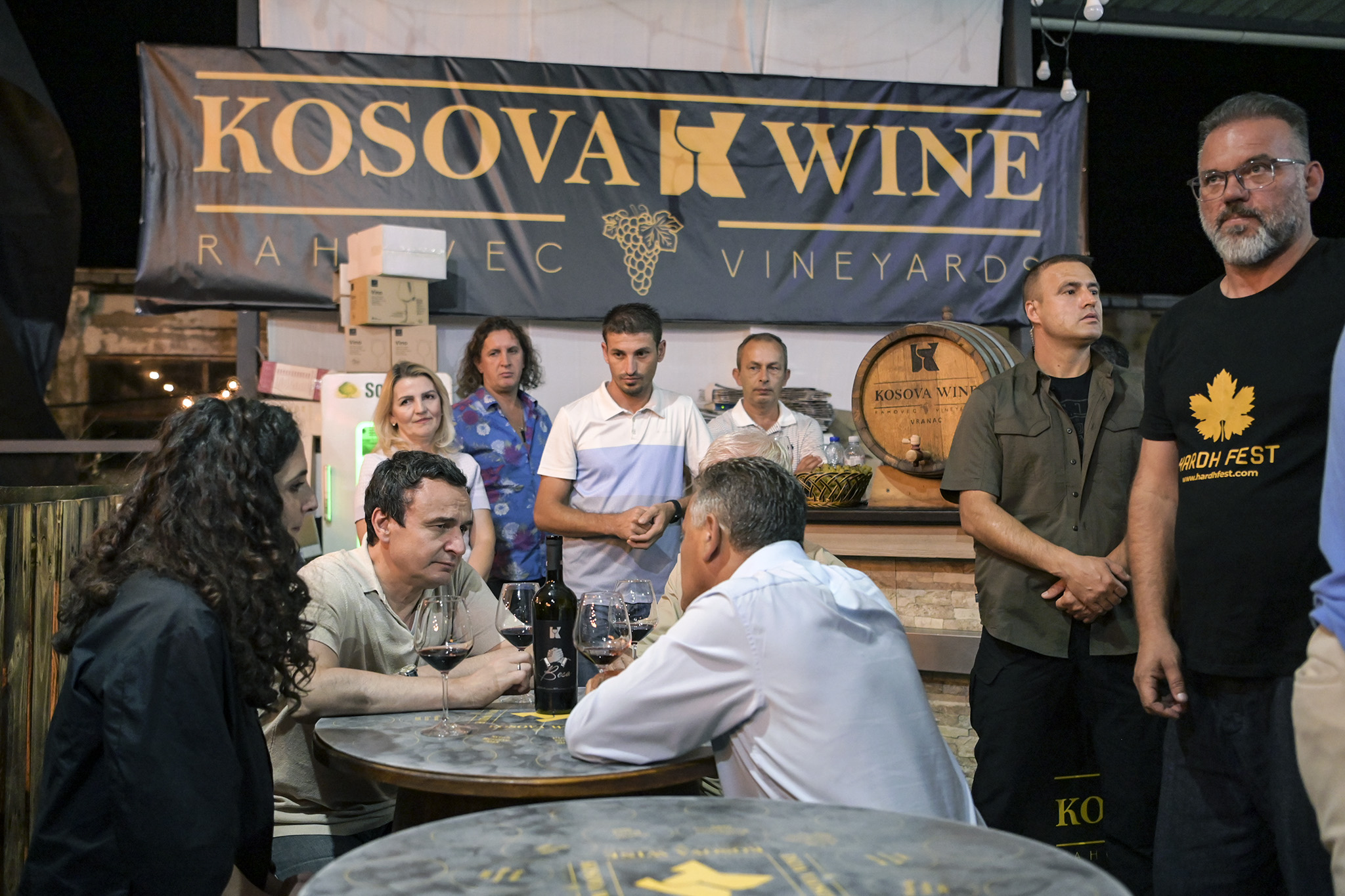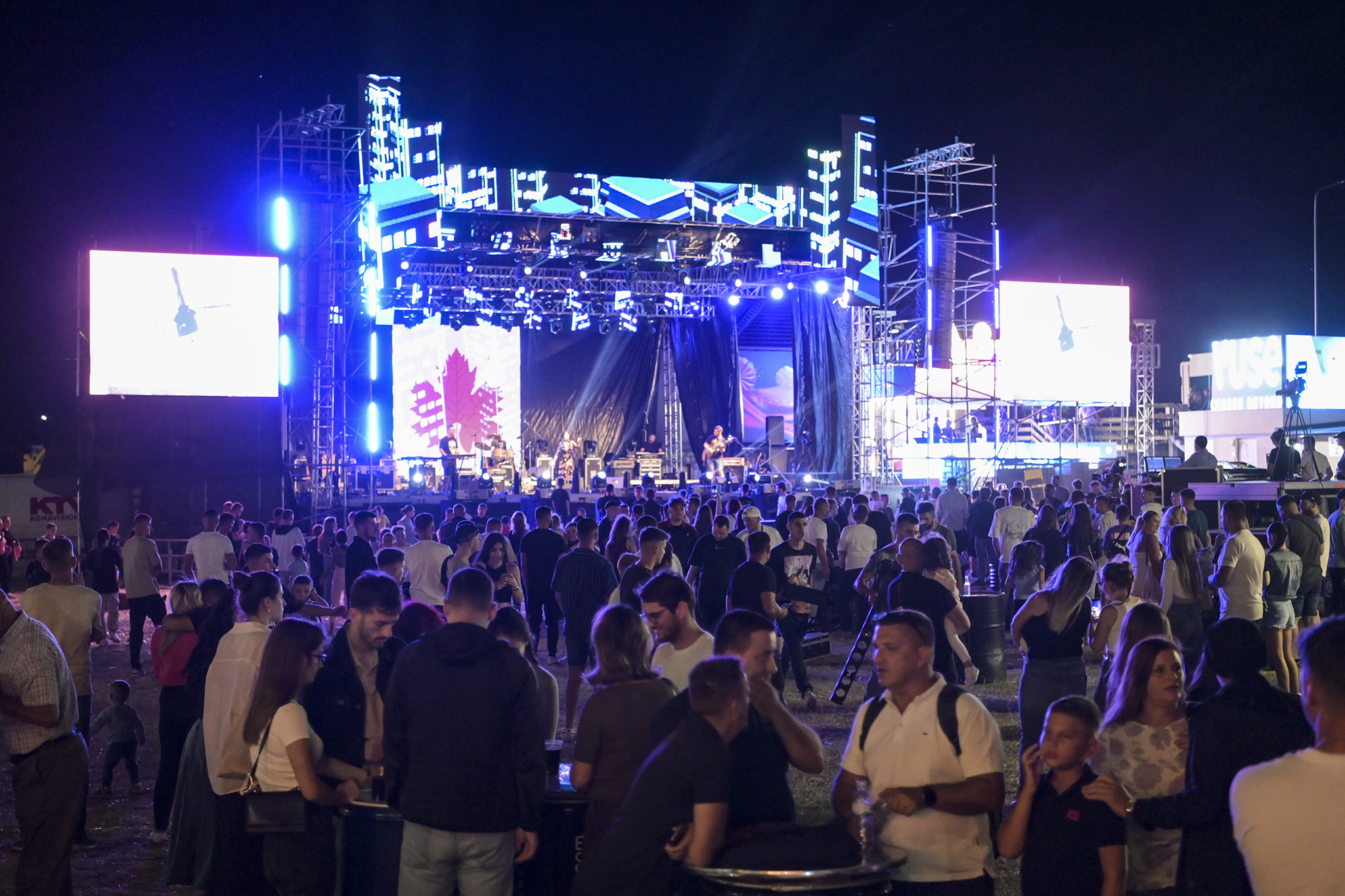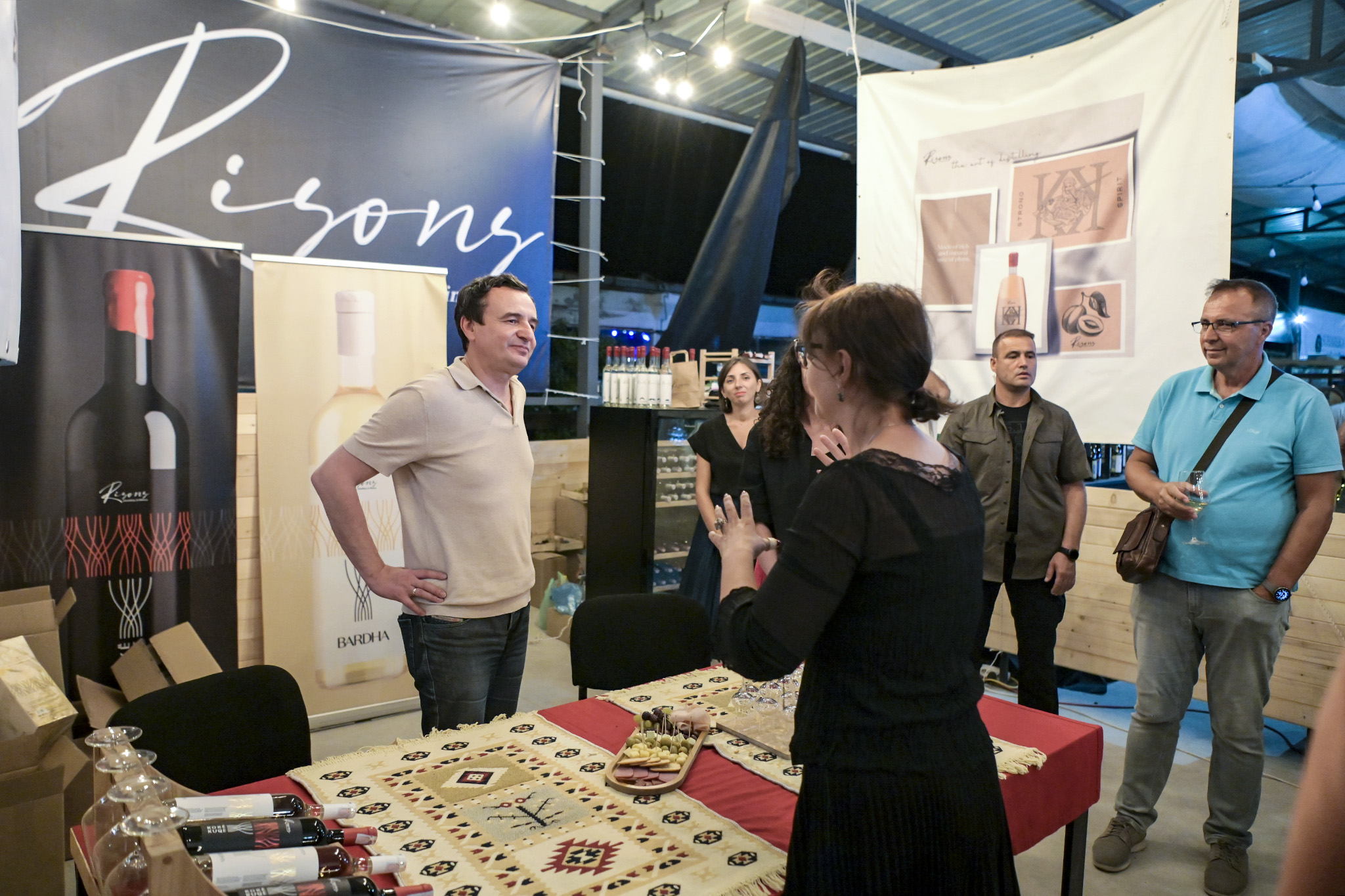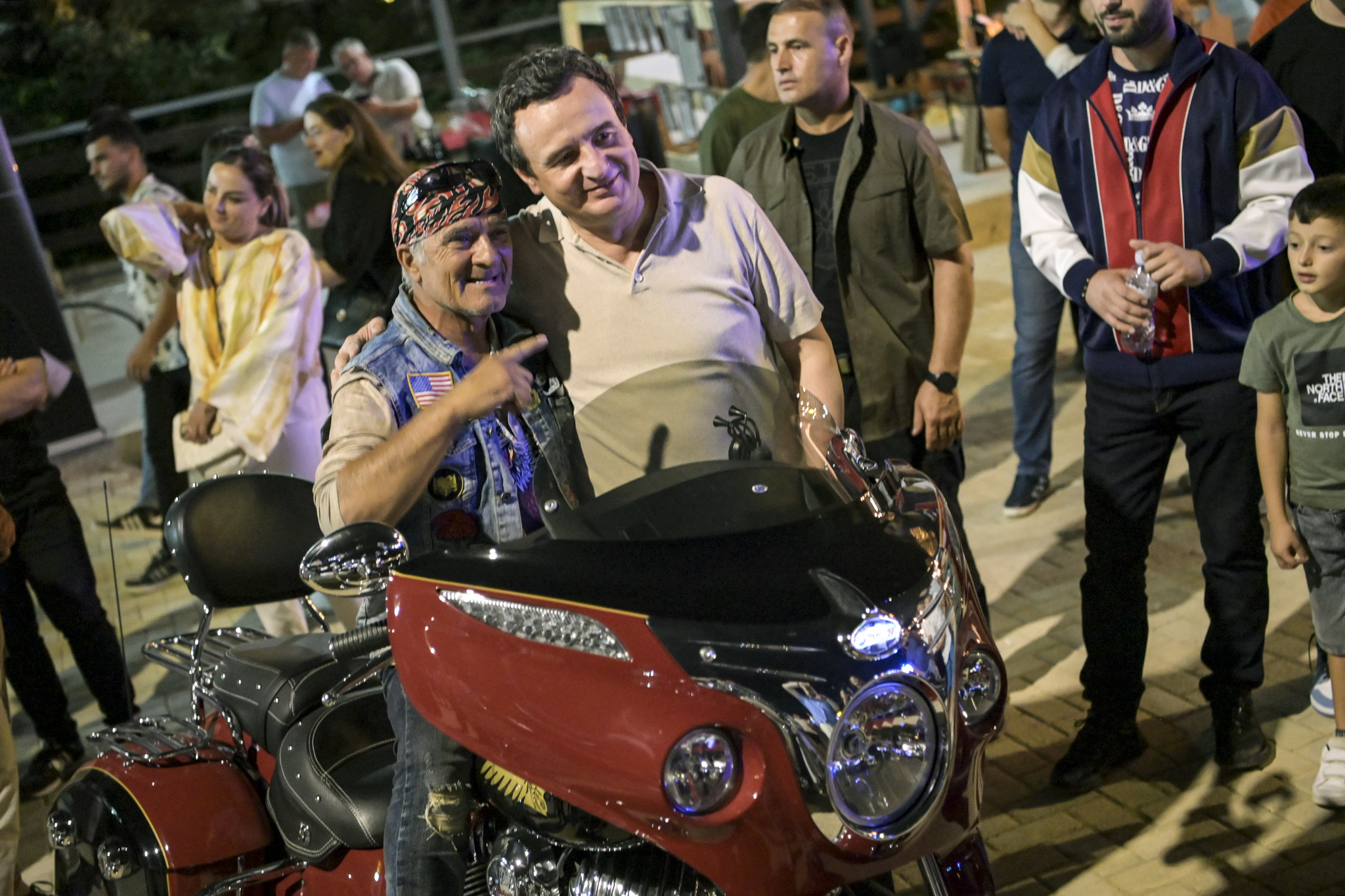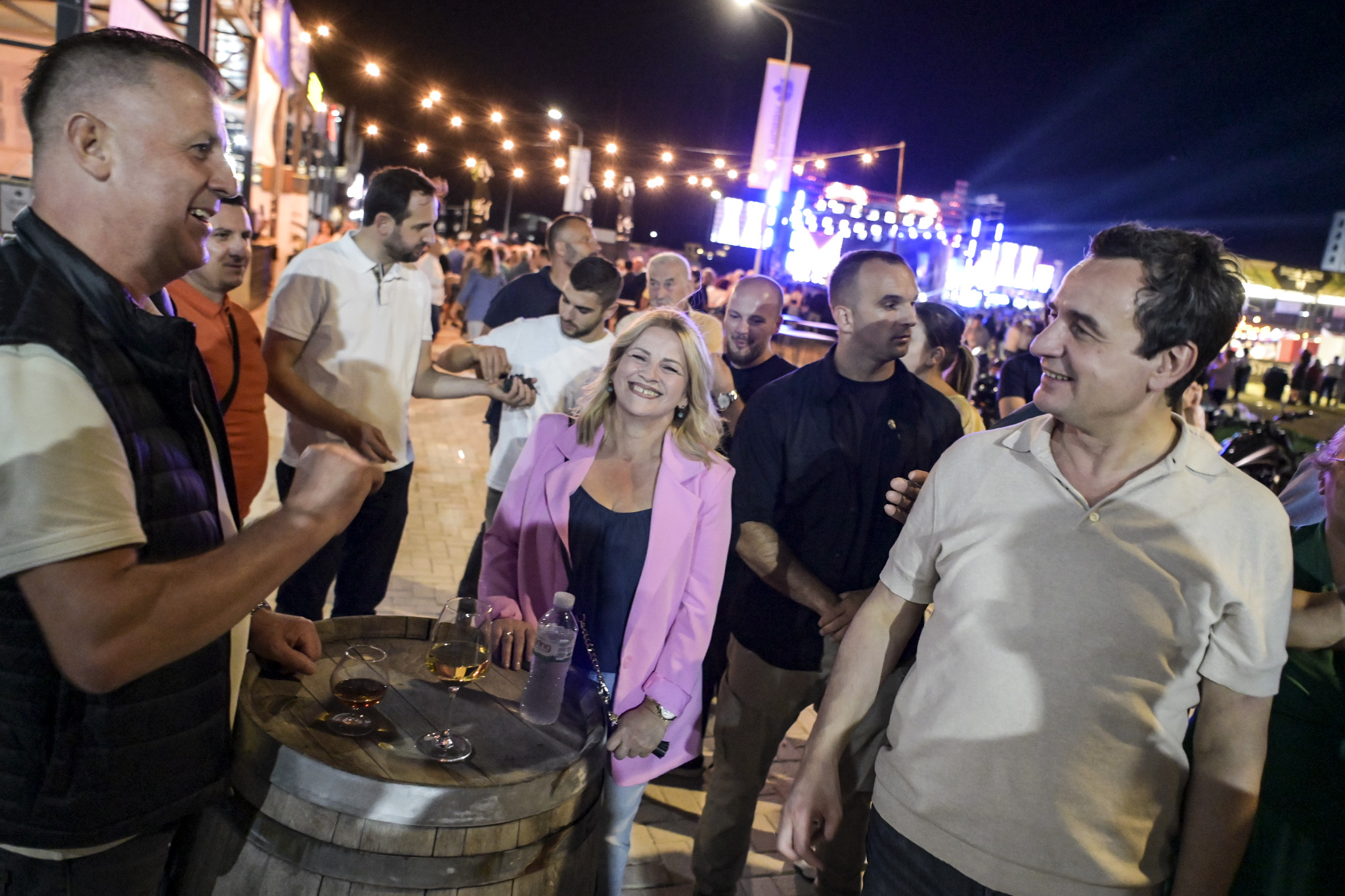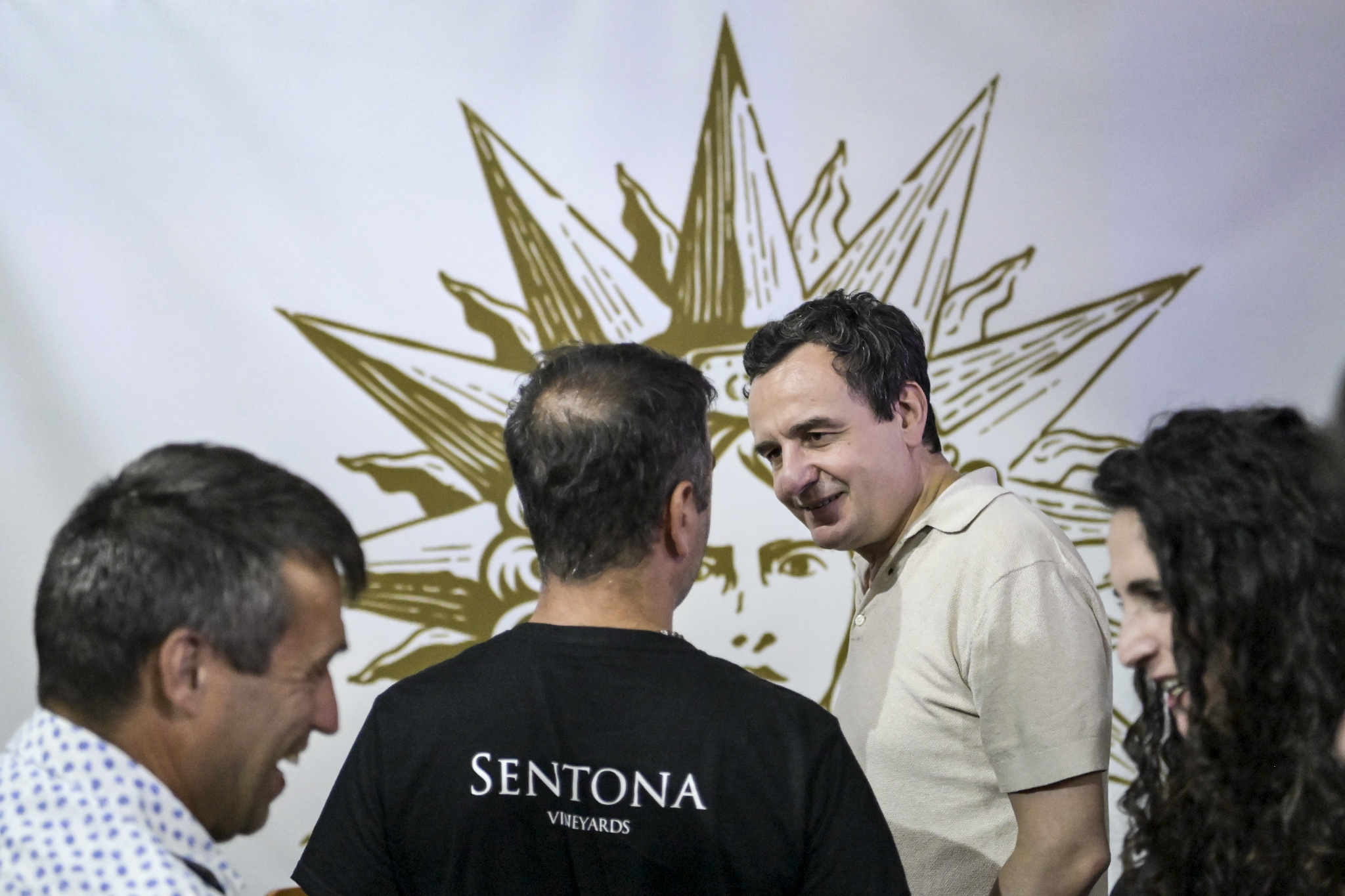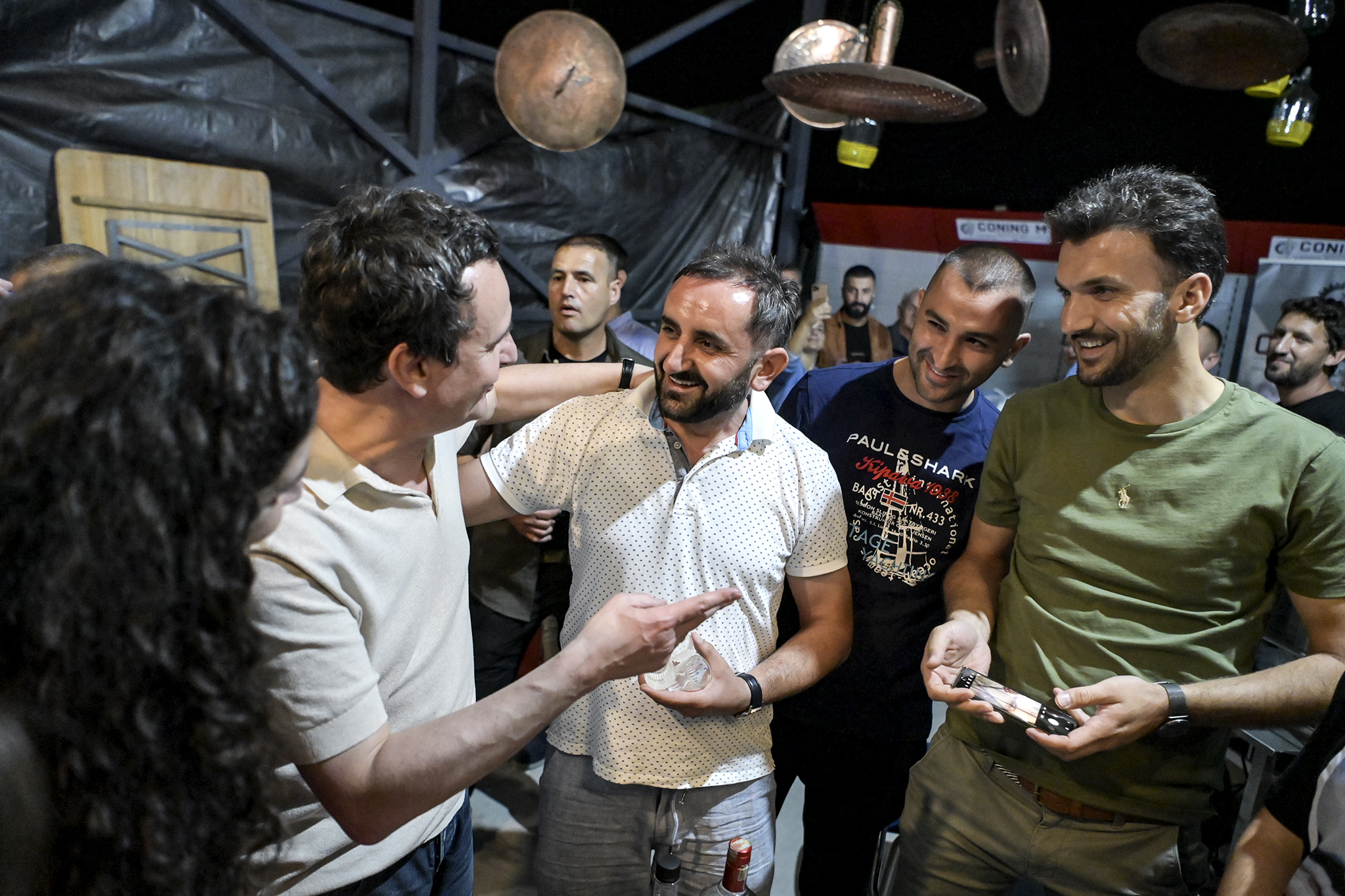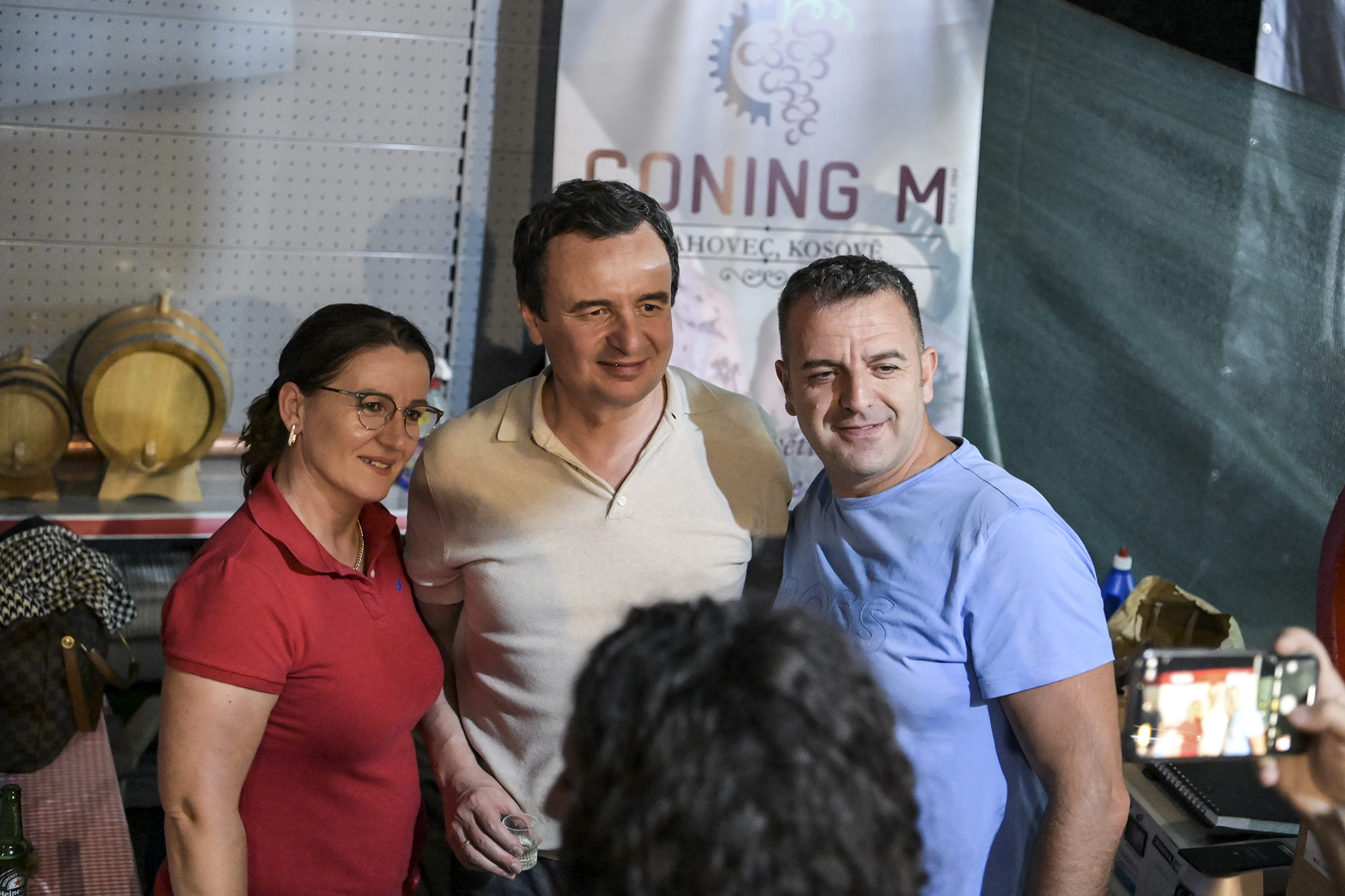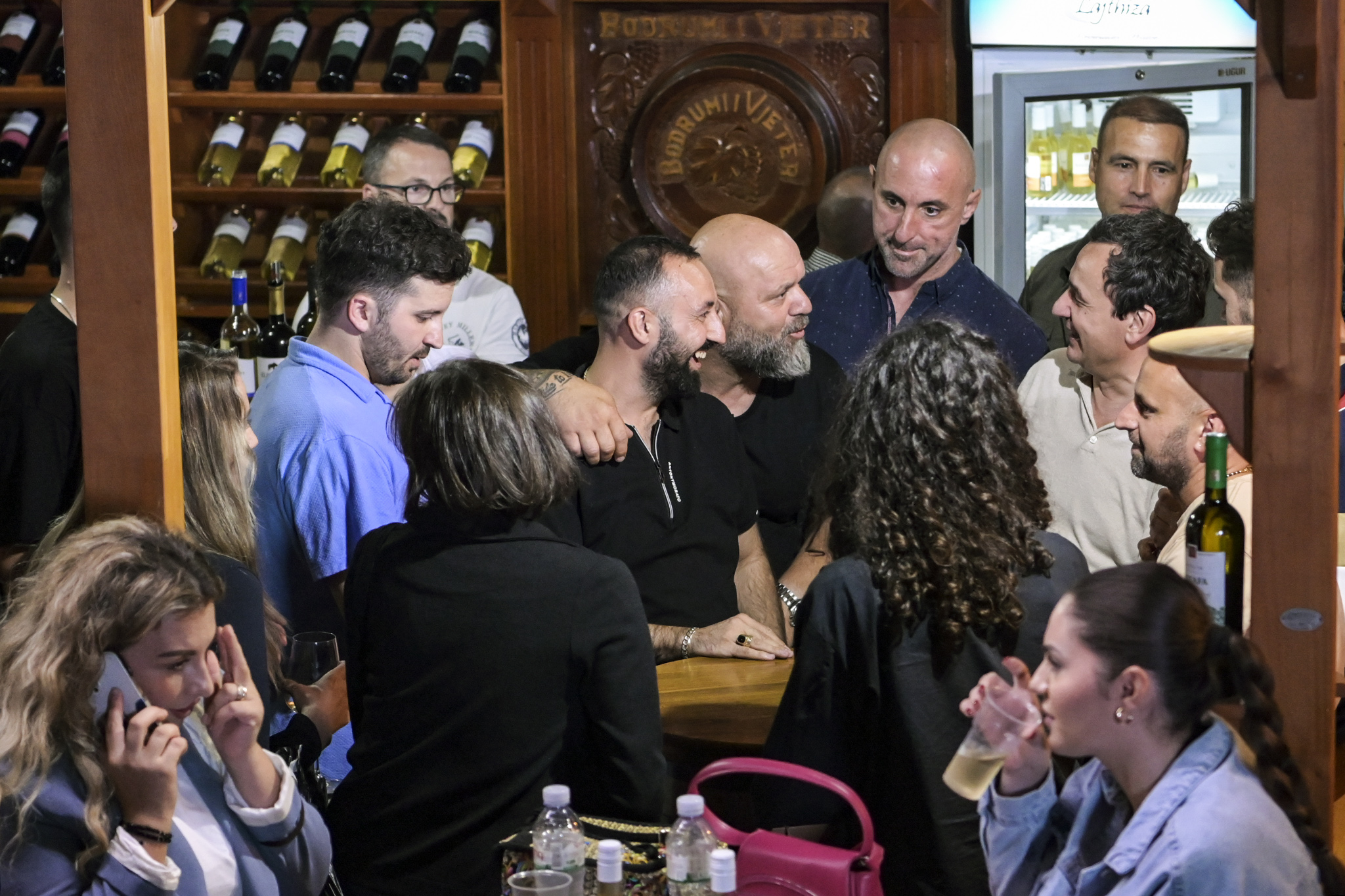Rahovec, 3 September, 2023
The Prime Minister of the Republic of Kosovo, Albin Kurti, took part last night in the activity “Hardh Ora Poetice” dedicated to the poet Xhevdet Bajraj, organized by Hardh Fest and the “Xhevdet Bajraj” Literary Club.
In the courtyard of the world-famous Albanian poet, Xhevdet Bajraj, Prime Minister Albin Kurti, appreciated this organization as a good way to compensate a little for the physical absence of the poet who passed away on June 22, 2022.
In front of those present, he expressed the feeling of being lucky to have known such a great poet personally.
“So, we know great artists by their works, but when you have managed to listen to them directly and touch them, the impressions are obviously greater, and I would say especially because it is about Xhevdet” , said Prime Minister Kurti.
Regarding the evaluations of his verses, which he also recalled during this activity, he said that in addition to verses, they are also songs produced by social preoccupations that make Xhevdet Bajraj a great poet who has given a unique, aesthetic and social voice at the same time the pains of the people and the love for the homeland.
Meanwhile, in the academic aspect, Prime Minister Kurti emphasized the need to study this unique voice, while he felt satisfied with the establishment of the “Xhevdet Bajraj” Literary Club.
“This unique voice of Xhevdet Bajraj, which has an aesthetic and social aspect, at the same time for both these powerful dimensions, is undoubtedly good to be studied and cultivated in our universities, in our academies and not only ours”, added the prime minister.
In the framework of the “Hardh Fest” festival, in addition to the Poetic Hour, Prime Minister Kurti also visited the wine fair, accompanied by the Deputy Minister of Culture, Youth and Sports, Daulina Osmani and the deputy of the Vetëvendosje Movement, Visar Korenica.
Prime Minister Kurti’s complete speech:
It is very difficult for me to come to Rahovec, to come for “Hardhfest”, and not meet Xhevdet. But to come to his house when we physically have him among us, and to be at the end of this vine of his house, I believe that there was no better way to compensate even a little for the great emptiness that each of us has in our hearts , not only today.
Dear friends, Drita and Besa and Fadil,
Dear Zyrafete, Agron e Qemal,
Dear attendees, fans of Xhevdet’s poetry, art lovers in general,
This year has been 5 years since I met Xhevdet for the first time and each meeting has lasted longer than we both thought, I would say more because of my desire to be with him than the other way around .
Since I was learning, I enjoyed what I heard, and between meetings I had his books that I read, but also between his books that I read, I had meetings.
Therefore, I feel very lucky to have known such a great poet personally. That is usually not the case. So, we know great artists by their works, but when you have managed to listen to them directly and touch them, the impressions are undoubtedly greater, and I would say especially because it is about Xhevdet.
The last book of his that I read is his last book. It is therefore “Angelus Novus”, a collection of previously unpublished poems in something that fills us with nostalgia but also with hope.
The extraordinary impression was already in the first poem “One step before”. I didn’t know that, to tell you the truth, I agree with Xhevdet about one of his thesis in this first poem, about an issue that is very important not only for me.
“One step before” is the title of the poem, it says like this:
“It is not difficult to become a man,
Just one step forward
Always one step ahead,
You have to do it within yourself.”
So, it doesn’t talk about the steps they take in the world, but about the steps they take in themselves. And to become a man. This is a shocking finding because it realizes that we are not exactly human. And frankly I agree. So we must become human. Being human is not a given fact, it is a human and social project. When we are born, we are technically born people, but we are born in a certain national, state, continental, political context anyway, and we are already something of someone.
But what we have to do with our lives is to become people. In this sense, being human is of a higher rank of being than what we were in the beginning, what with the cultural and contextual peculiarities, and so on.
This is a topic about identification in a deeper sense than identity that I have not discussed with him, and you can imagine how glad I was to agree with what I read.
Next, it is interesting that Xhevdet talks about himself, without talking about himself. So those of you who have not met him, all of us who cannot meet him physically, it is worth re-reading because it has a layer of reading that says we are with him again.
This does not mean that he wrote about himself, but there is a disautobiography in his poetry. And, taking it to “A day in heaven”, it says that there is nothing left to do in life other than to nurture the child inside us who refused to grow up. Now, in my impression, this is Xhevdeti himself. Xhevdeti himself refused to grow up. It is a great trick to know how to make a child successful, especially the childlike curiosity within oneself, because the education system, life experience, and profession, along with whoever we choose or chooses for us, teaches us from childhood. So as we grow up, we learn about the child we have inside us, and it successfully resists, and I believe that Xhevdeti owes his success to this kind of success. His successful resistance to growing up and stable maintenance of childhood within himself.
But, for those who make music and create songs, if they do so with a, let’s say, engaged social preoccupation, then I believe that before someone produces, writes the next song, it is good to try Xhevdet, and the verses of his songs are also his. They are socially engaged songs, which is perhaps a sin that they are not made into songs as they are. Someone would say that if a musician likes this job like Xhevdet, who is a poet, to become one, then hope does not leave the young man easily.
To quote him in one of his poems he says:
“Stop it, you
Drink water in the river
‘Take it with you,
Get drunk with life.”
It is endless, lines of protest in different songs, but these by Xhevdet are very appropriate, so there is a kind of pressure in the world today to be constantly creative, to invent something new, but I believe that this should not be in at the expense of the respect of those who have already done something new. Perhaps we need new genres and forms of what already exists. It is not said that each of us should in everything, all the time and everywhere produce something new, create something unprecedented. It is simply important to connect with each other and let’s say to overbuild, because often the new building is exactly this type of overbuilding that makes it impossible, as Xhevdet would say, to take a step forward within yourself.
Or to the poem “Memories”:
“On a stone plate,
From a wooden glass,
I eat and drink the memories of my ancestors
I made you ashes”.
Here you can see what kind of momentum he wrote this verse, but not momentum for thought, because when he rereads it, he finds the thought. When you read it face to face with the momentum it holds, and in this sense I believe that his poems are songs very suitable for singing as well as for reading.
Xhevdet Bajraj, for my strong conviction, is our greatest poet who has simultaneously given a unique, aesthetic and social voice to the pains of the people and the love for the homeland. So also the pains of the people, and the love for the homeland. For the homeland as something from the past that does not pass and for the people as something that originates from it and returns to it. So out of the people to come back inside.
Therefore, this unique voice of Xhevdet Bajraj, which has an aesthetic and social aspect, at the same time for both these powerful dimensions, is undoubtedly good to be studied and cultivated in our universities, in our academies and not only ours, and I really like it good that there will be a platform and a house with his name which will facilitate such a thing.
As Gustavo said in his poem, pain has its size, and I would only add that love also has its way.
Thank you.
Last modified: September 4, 2023
